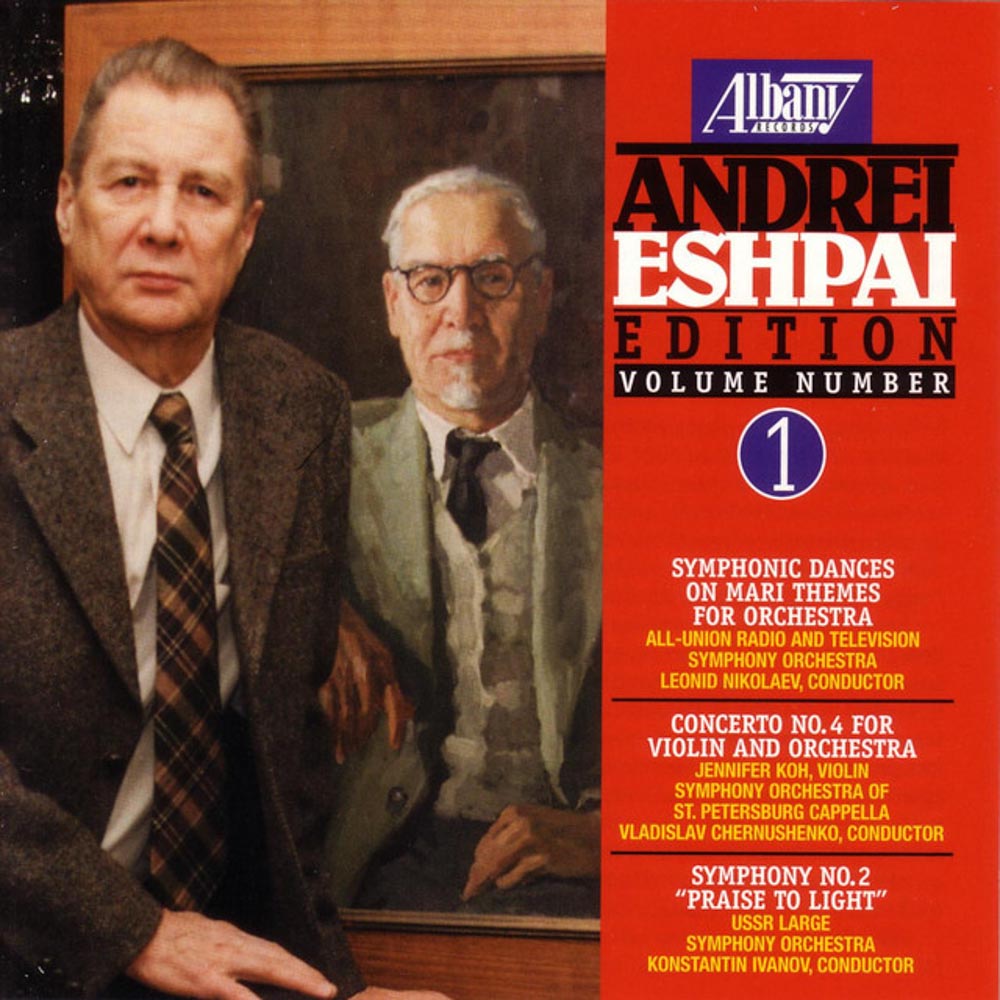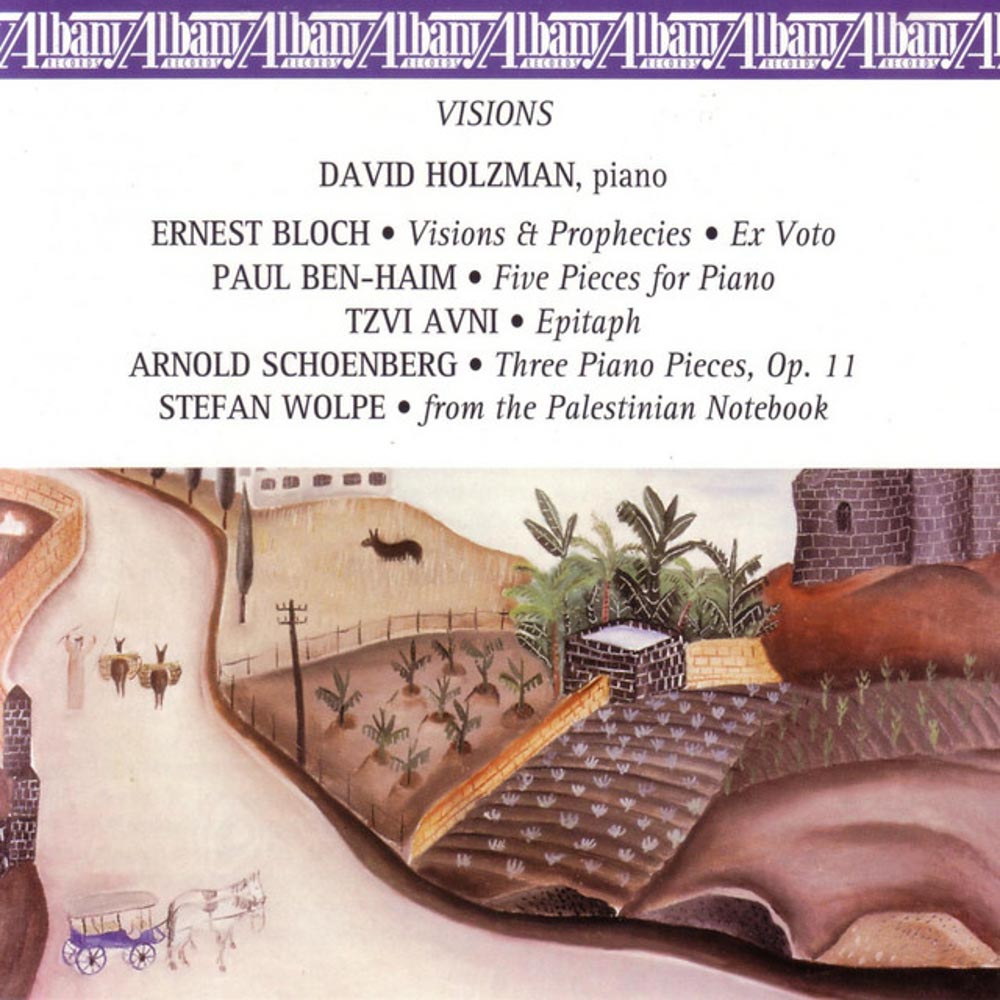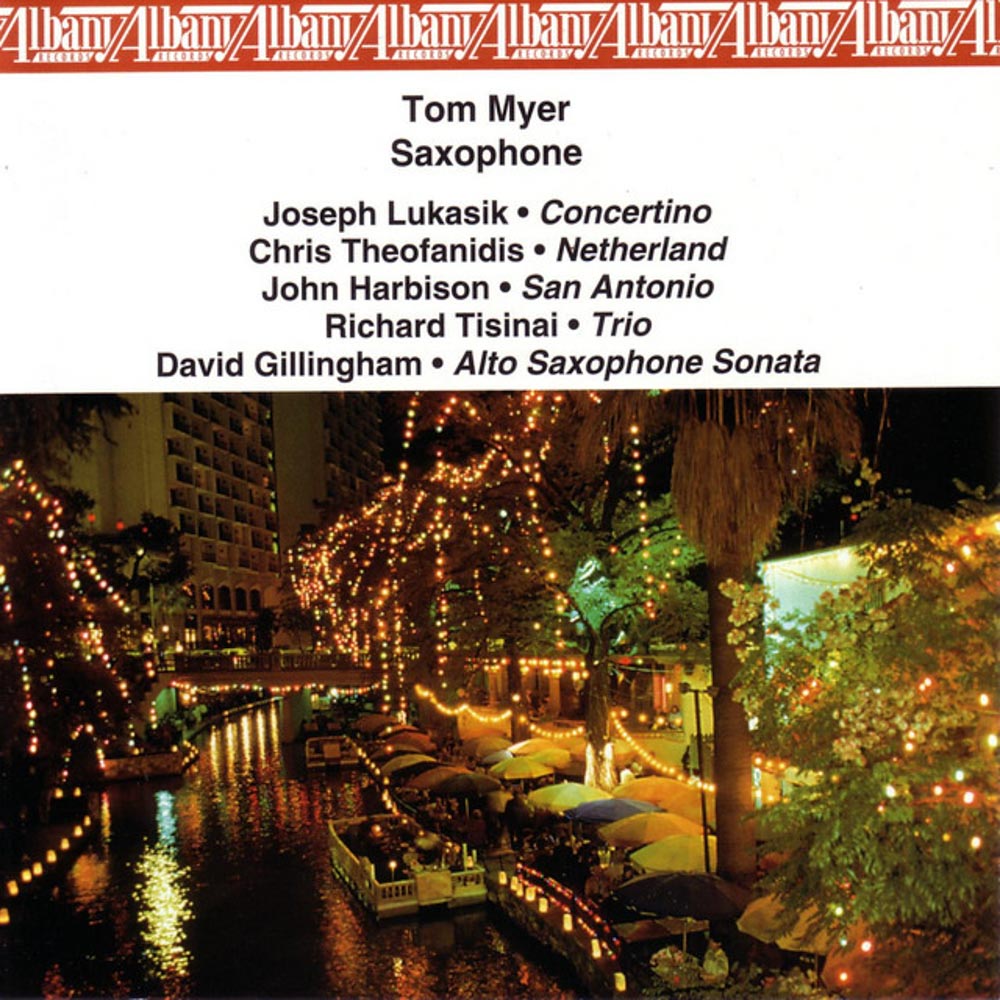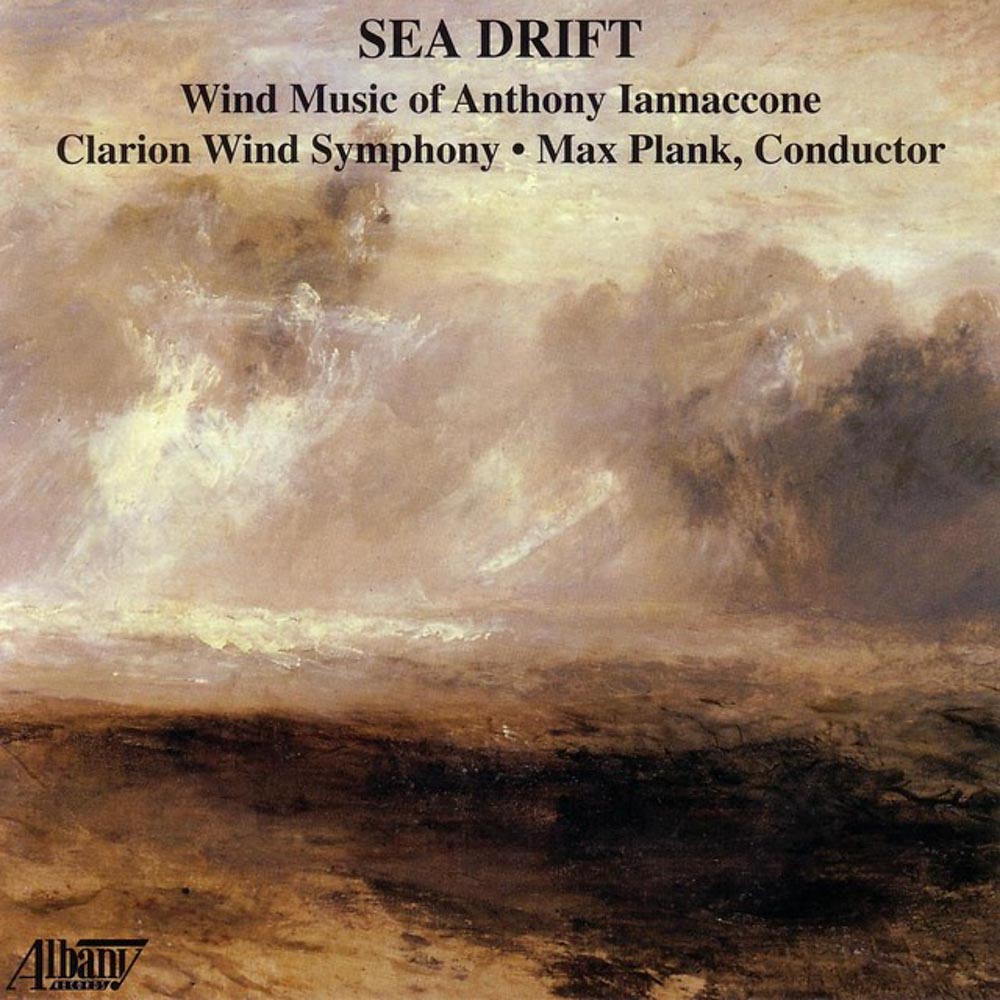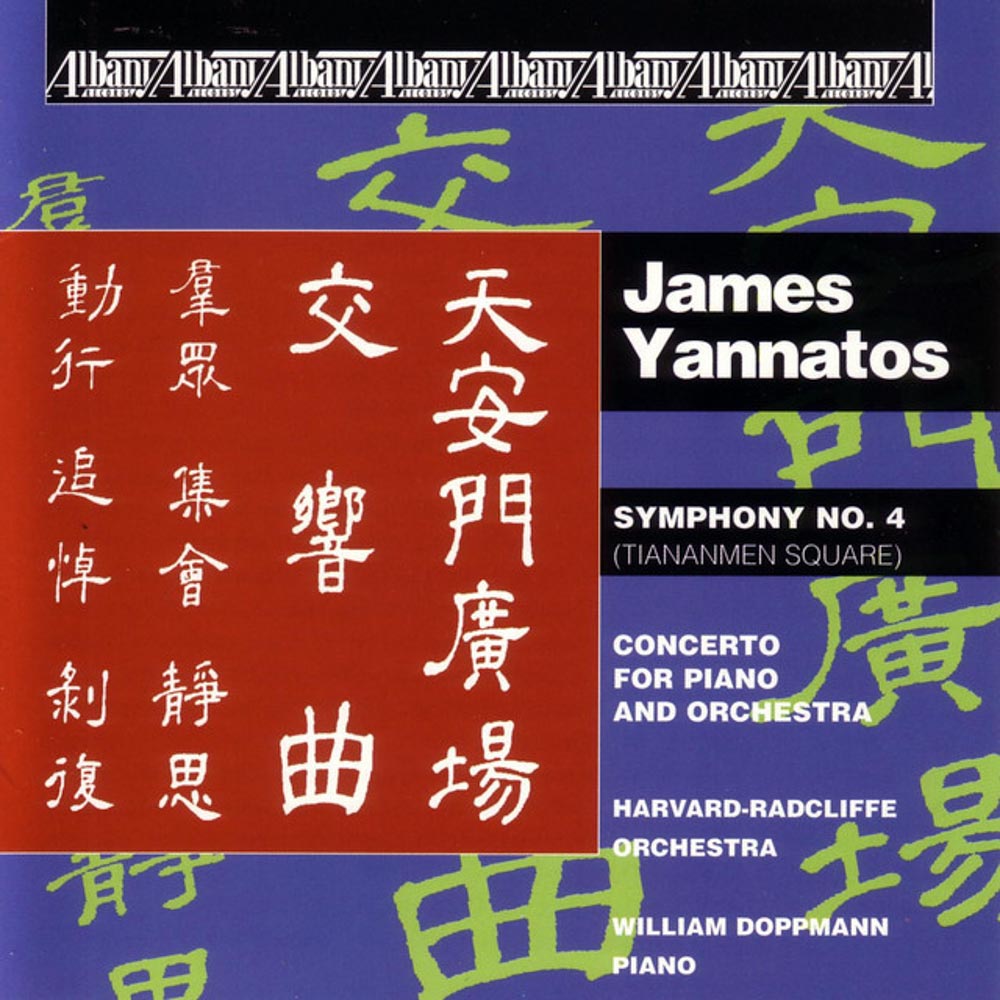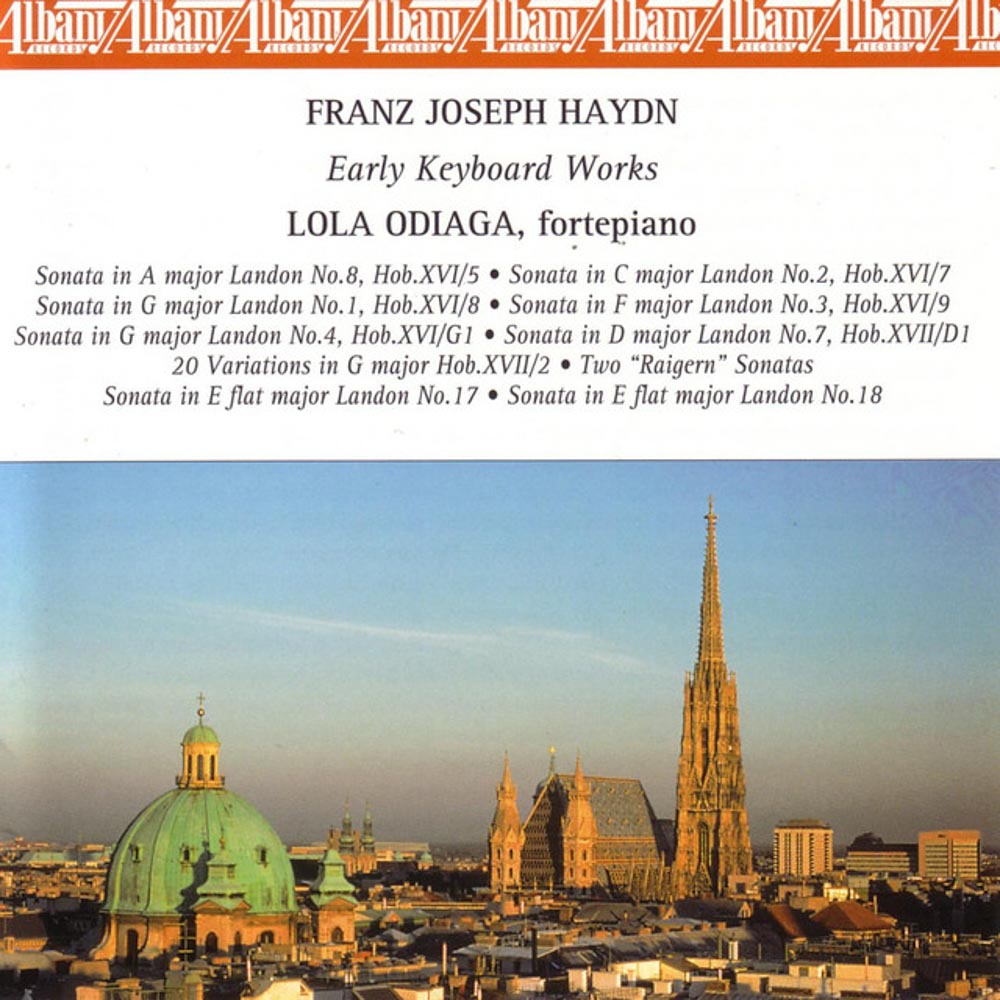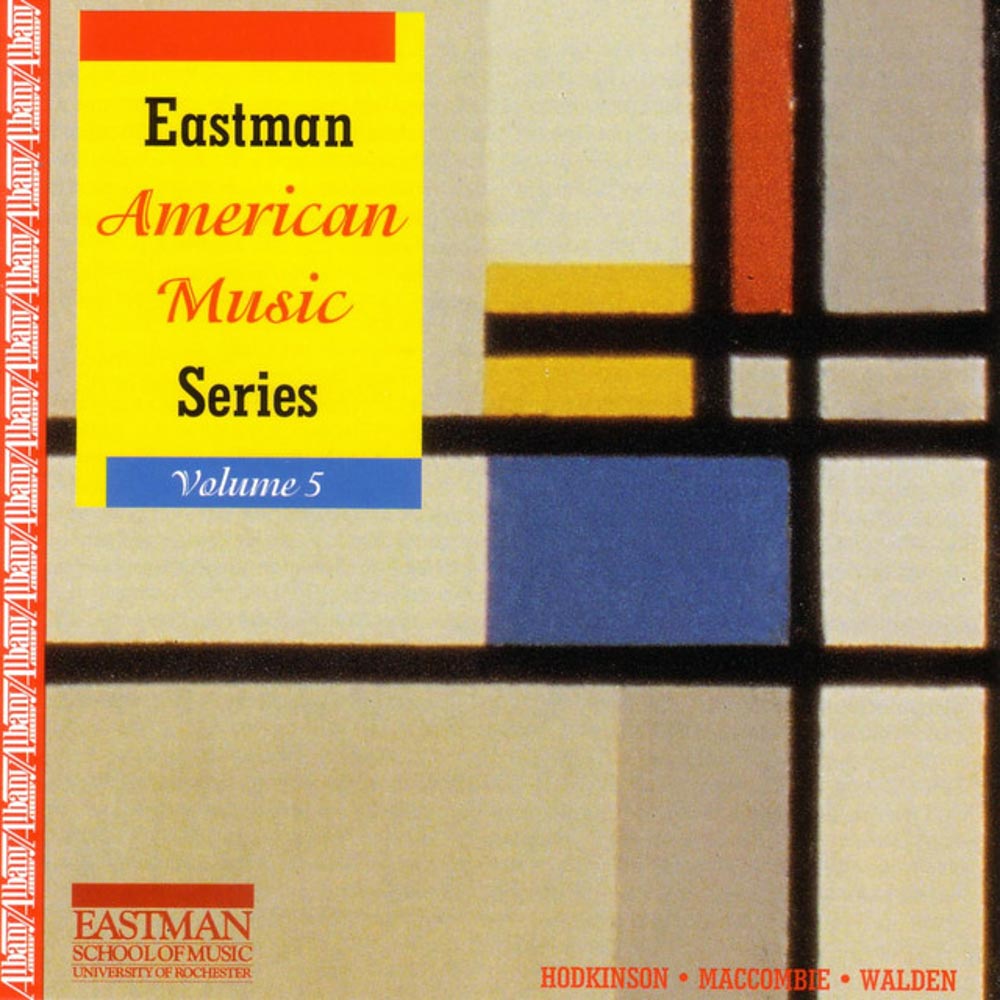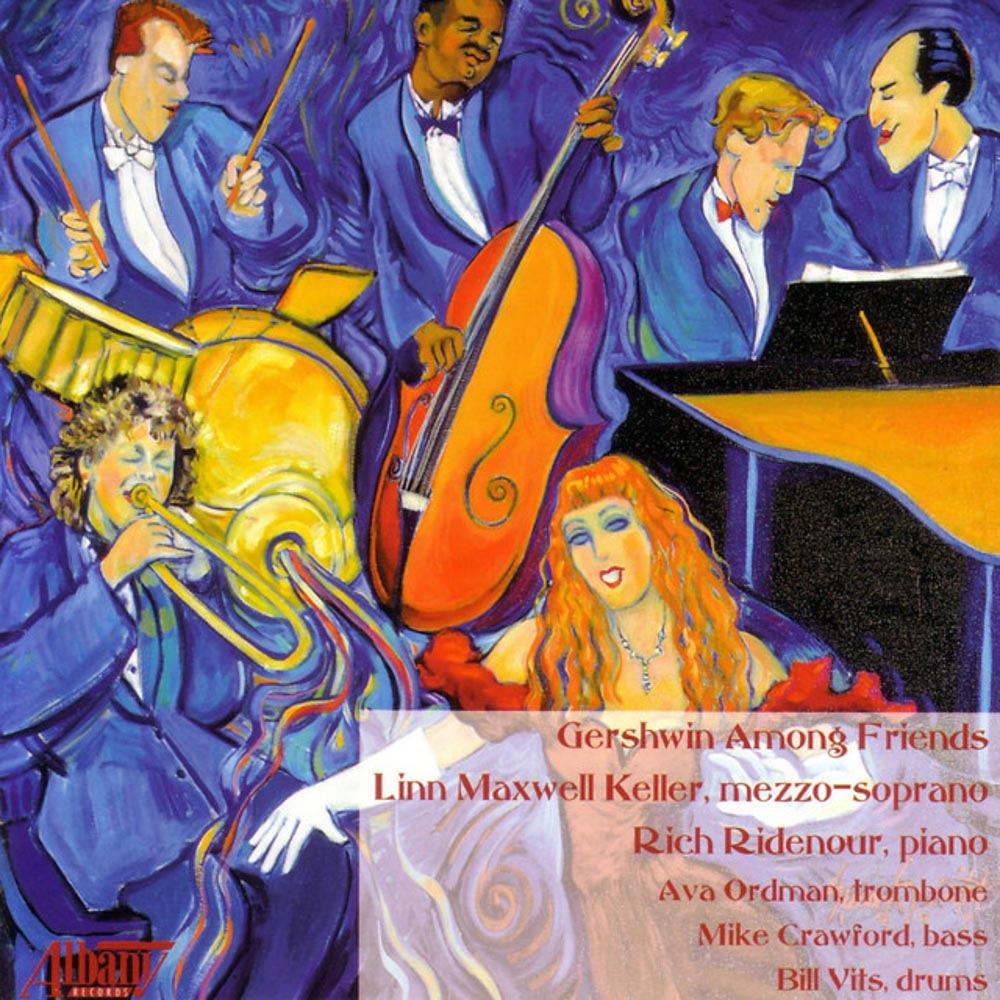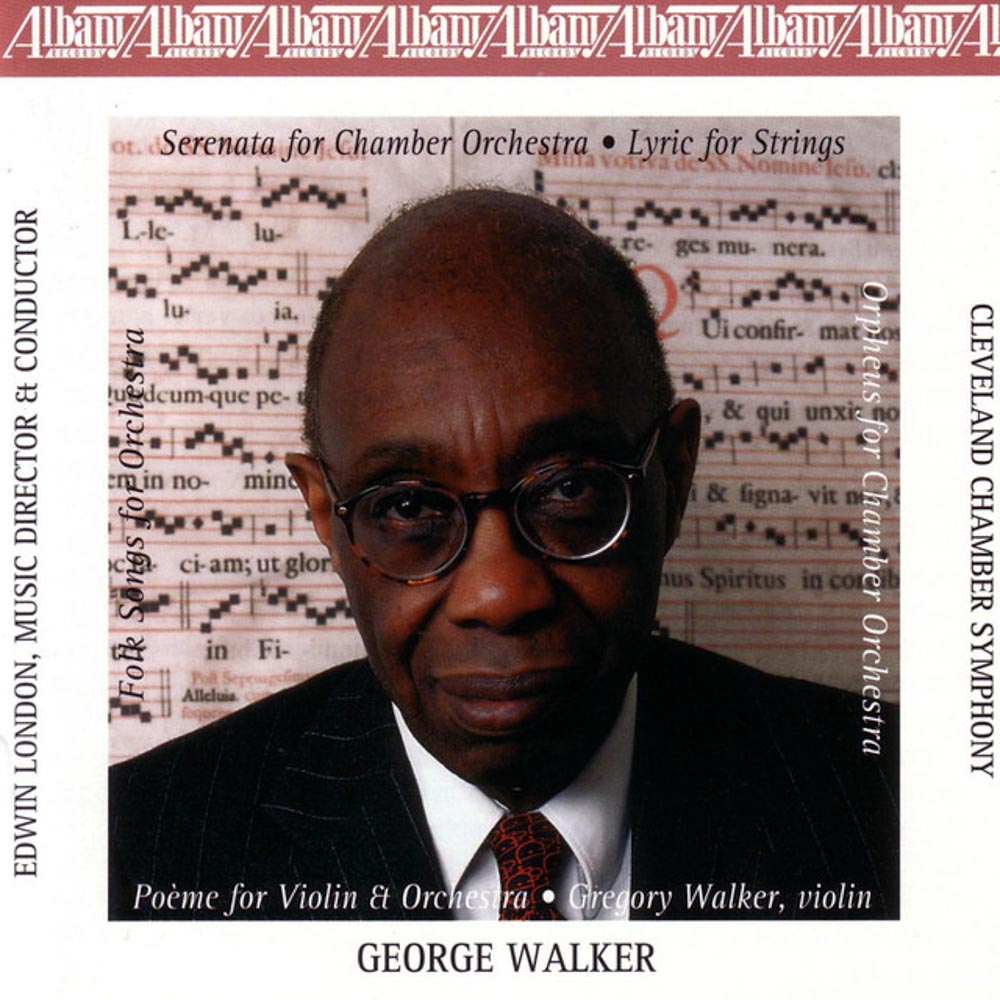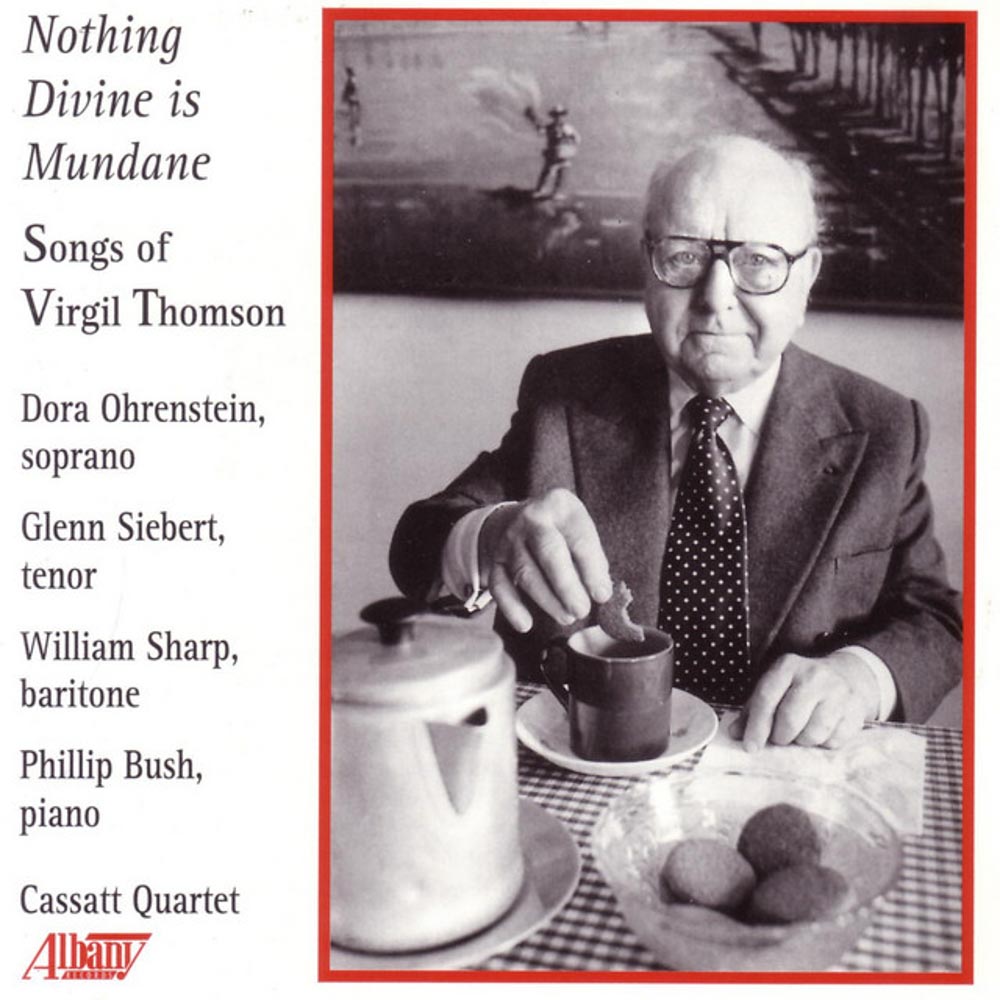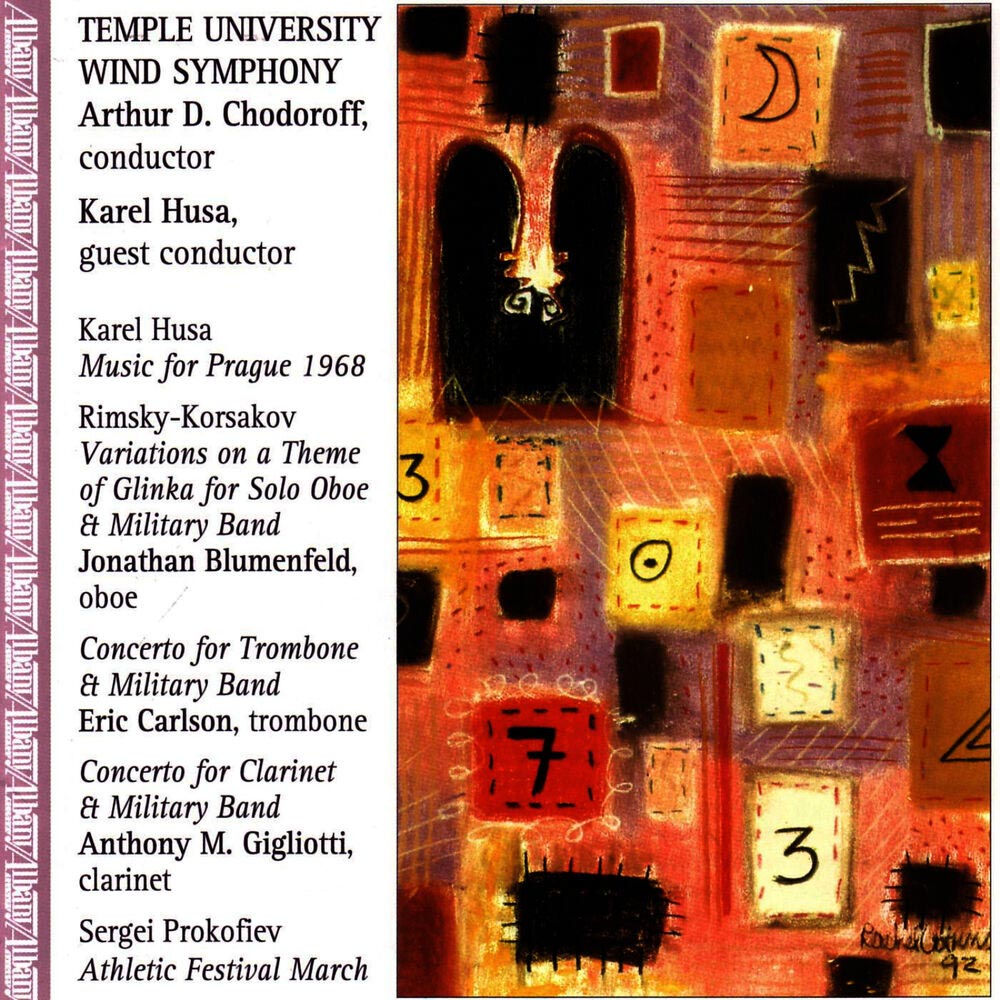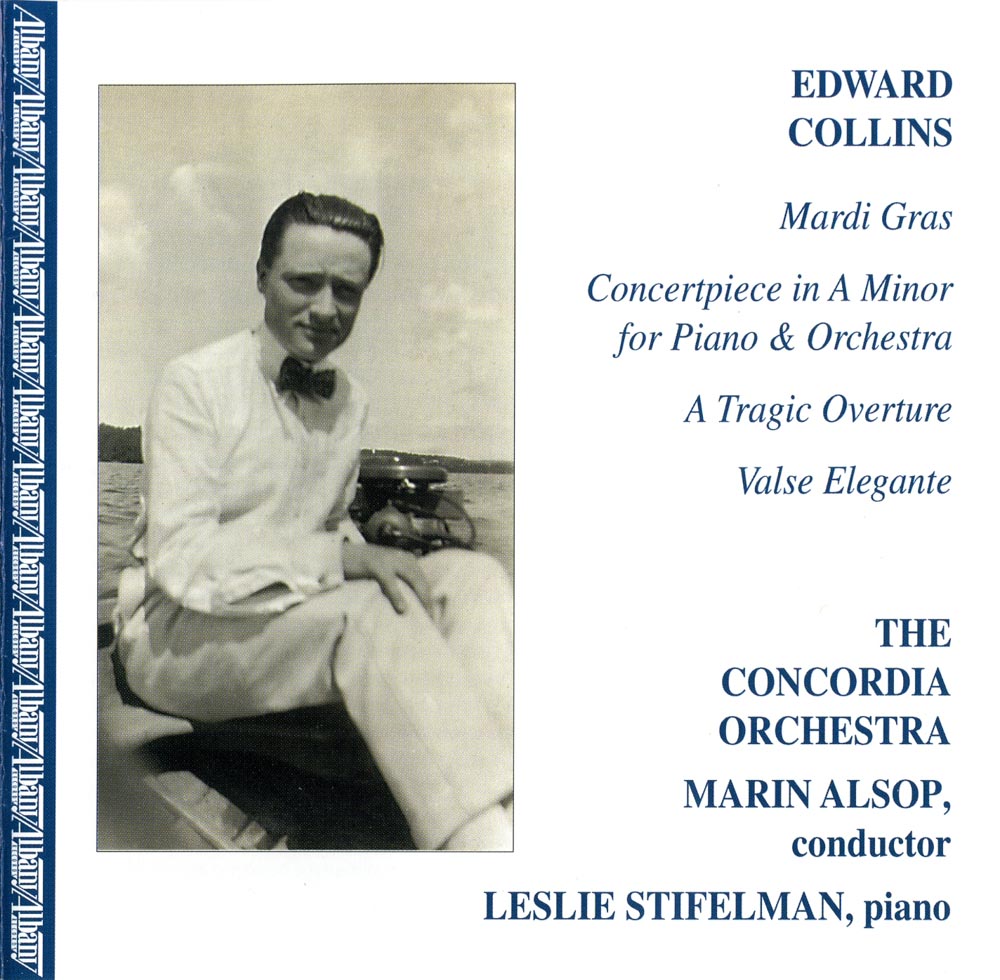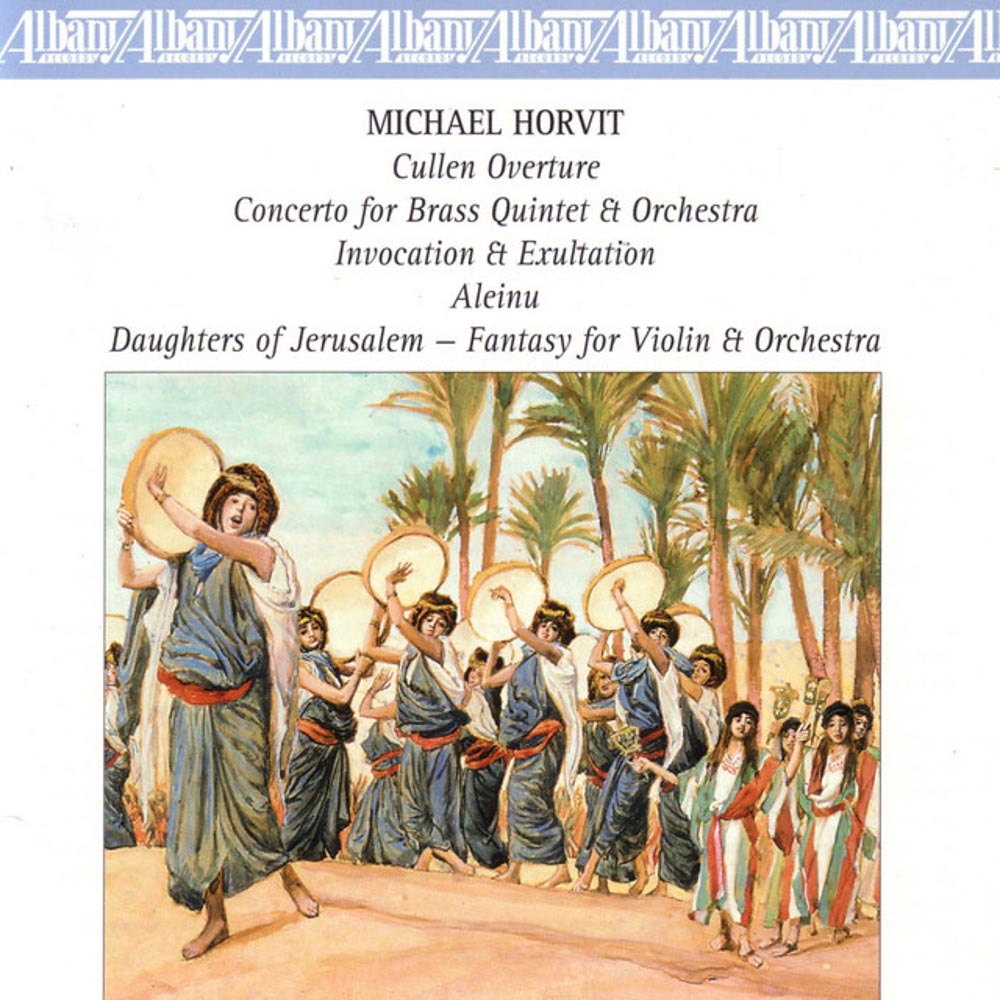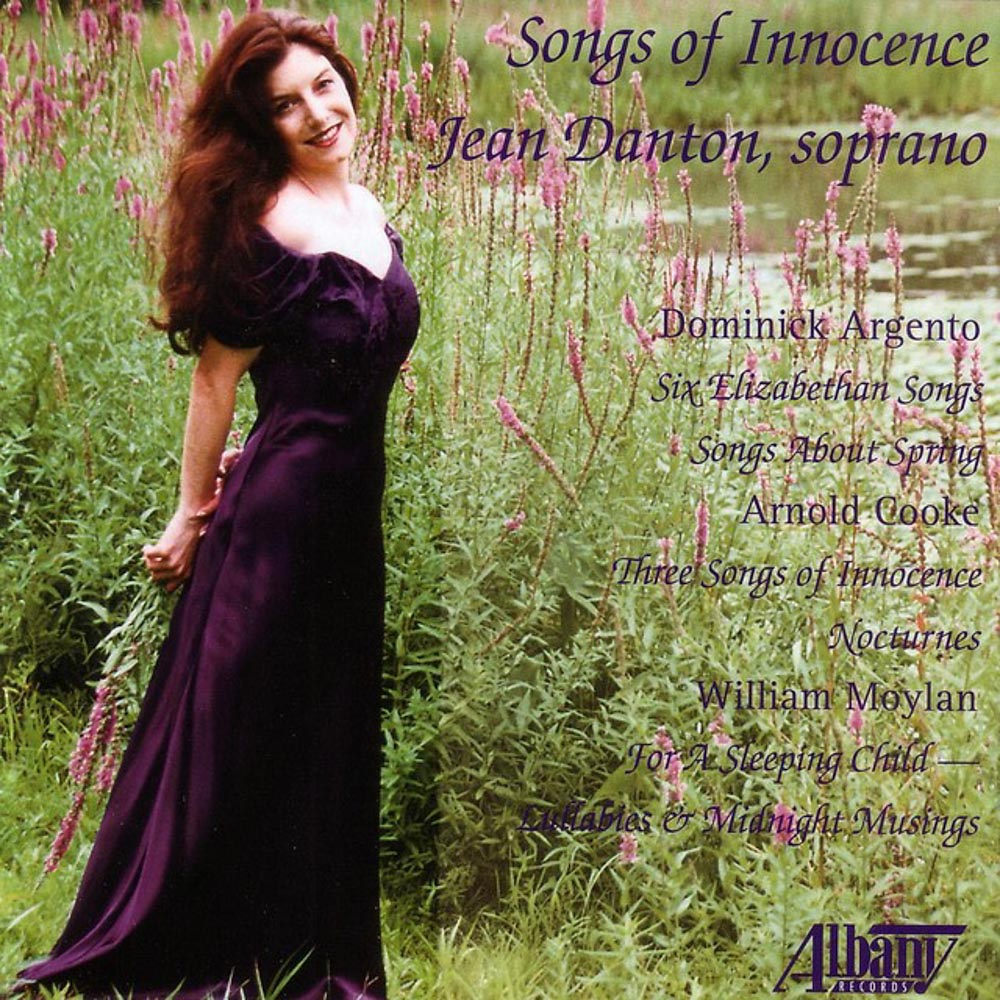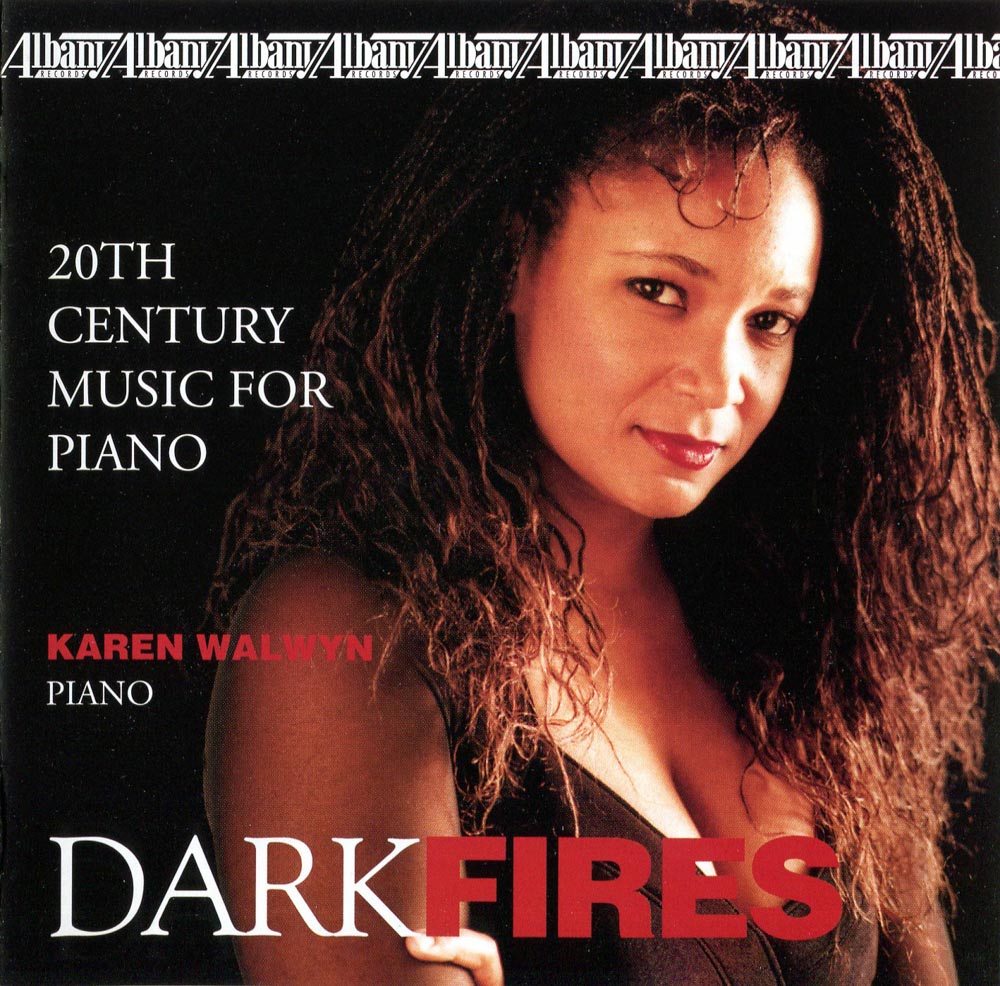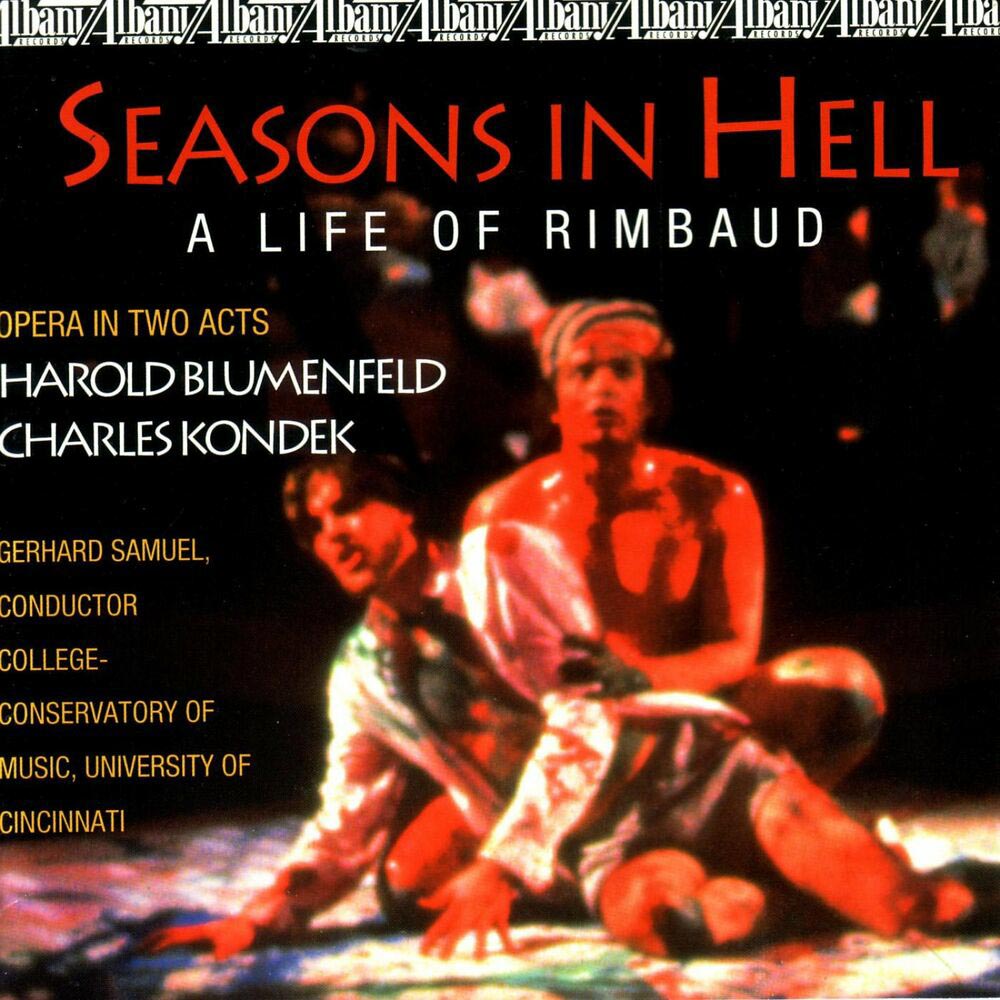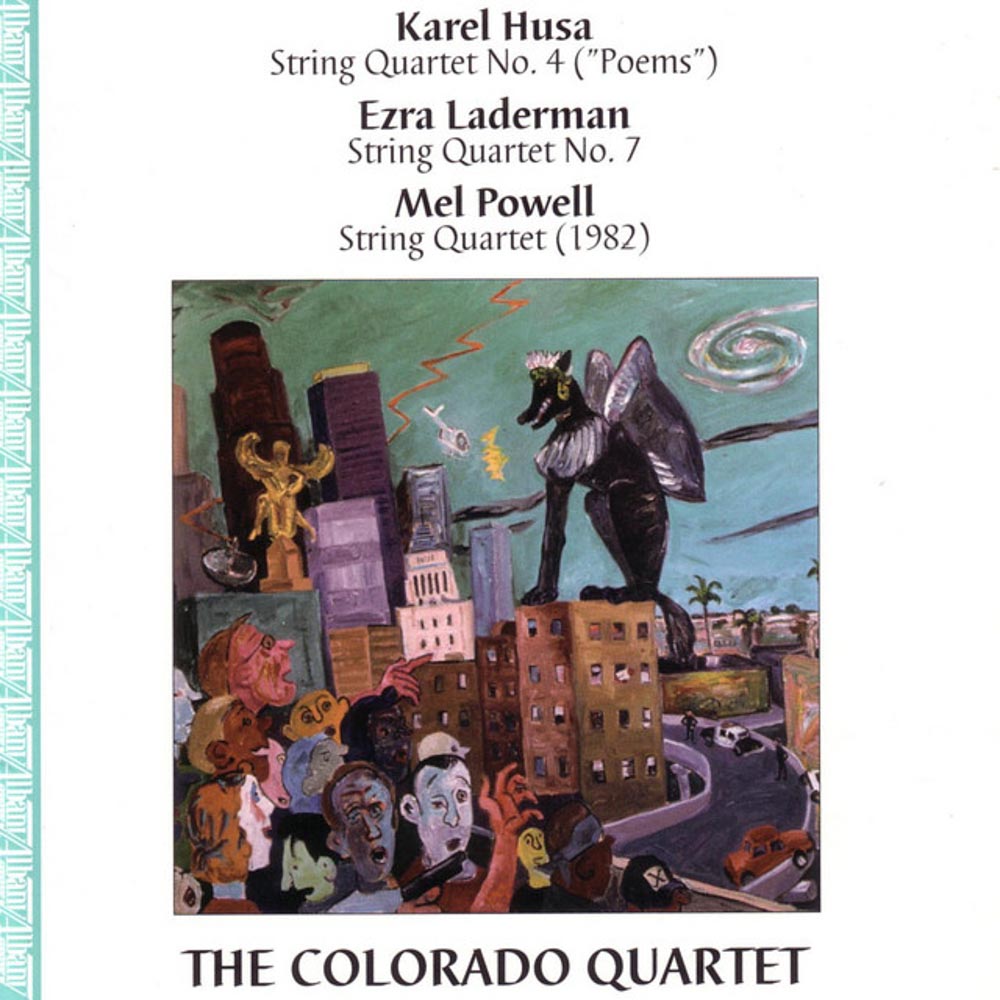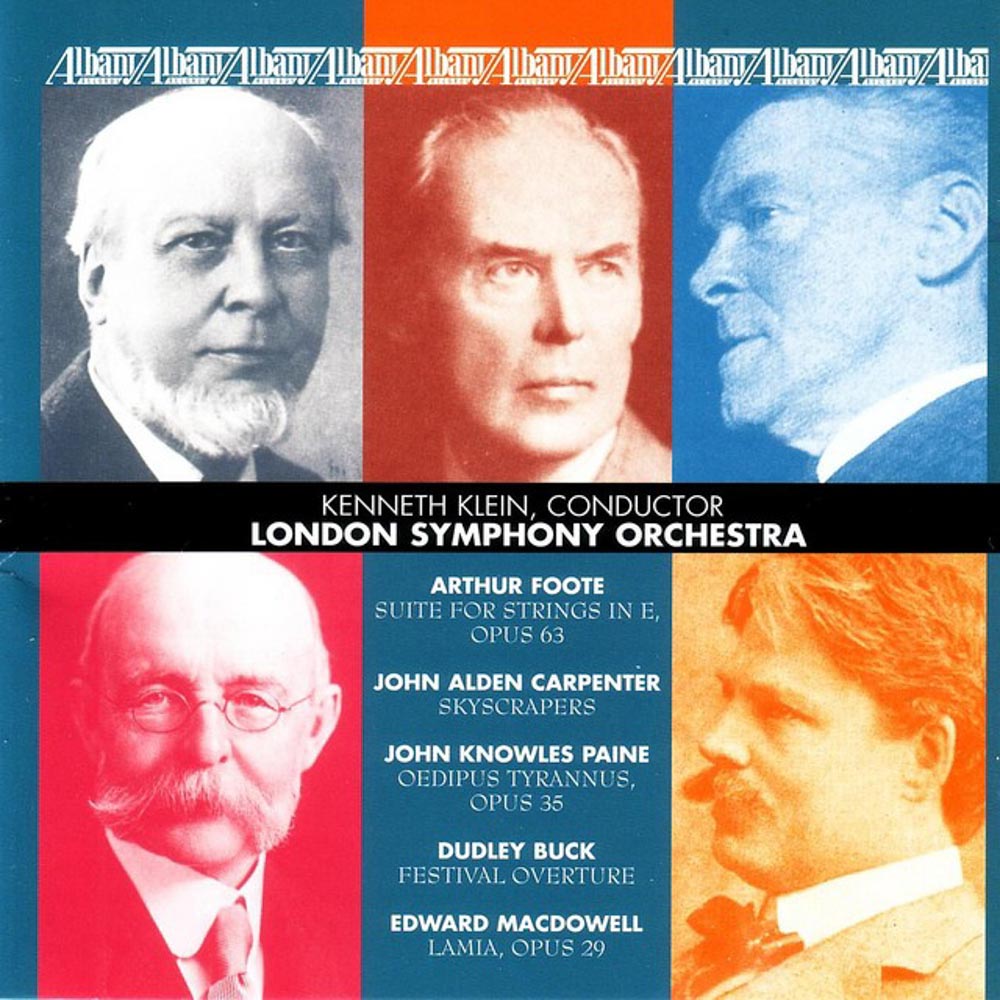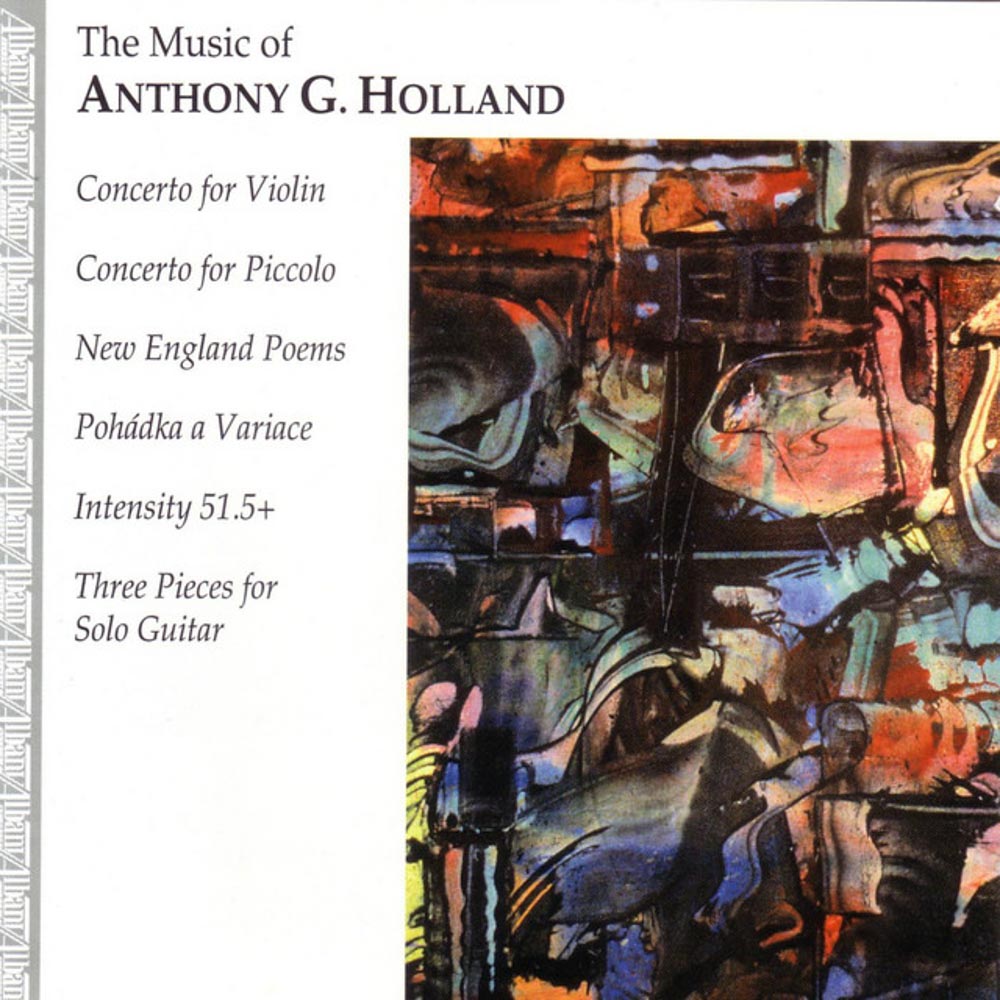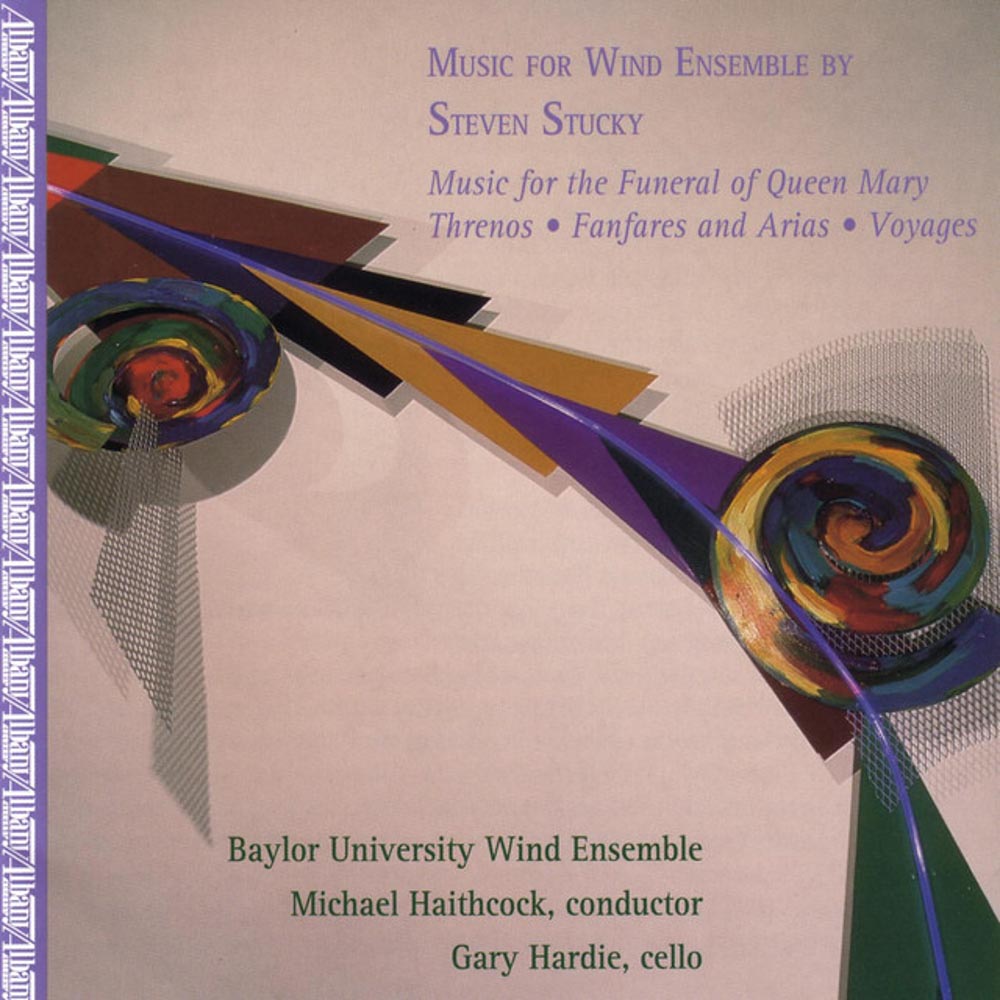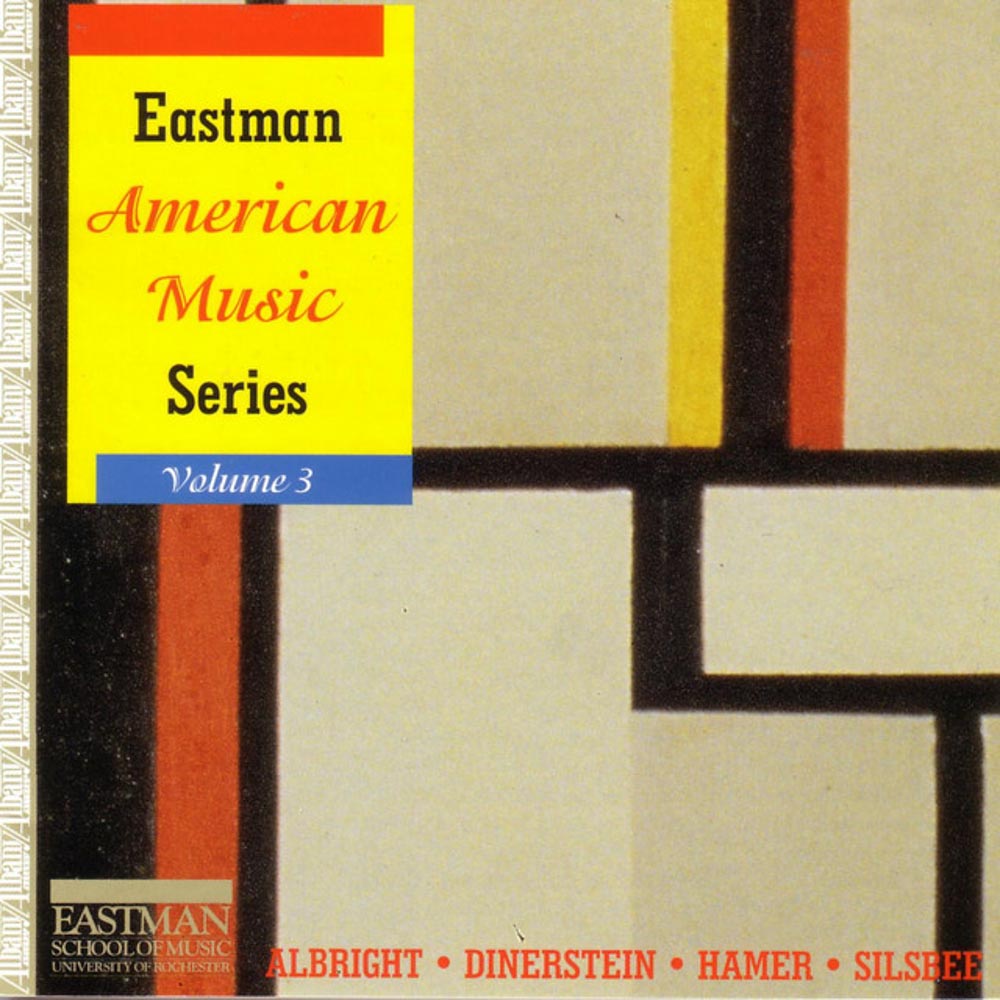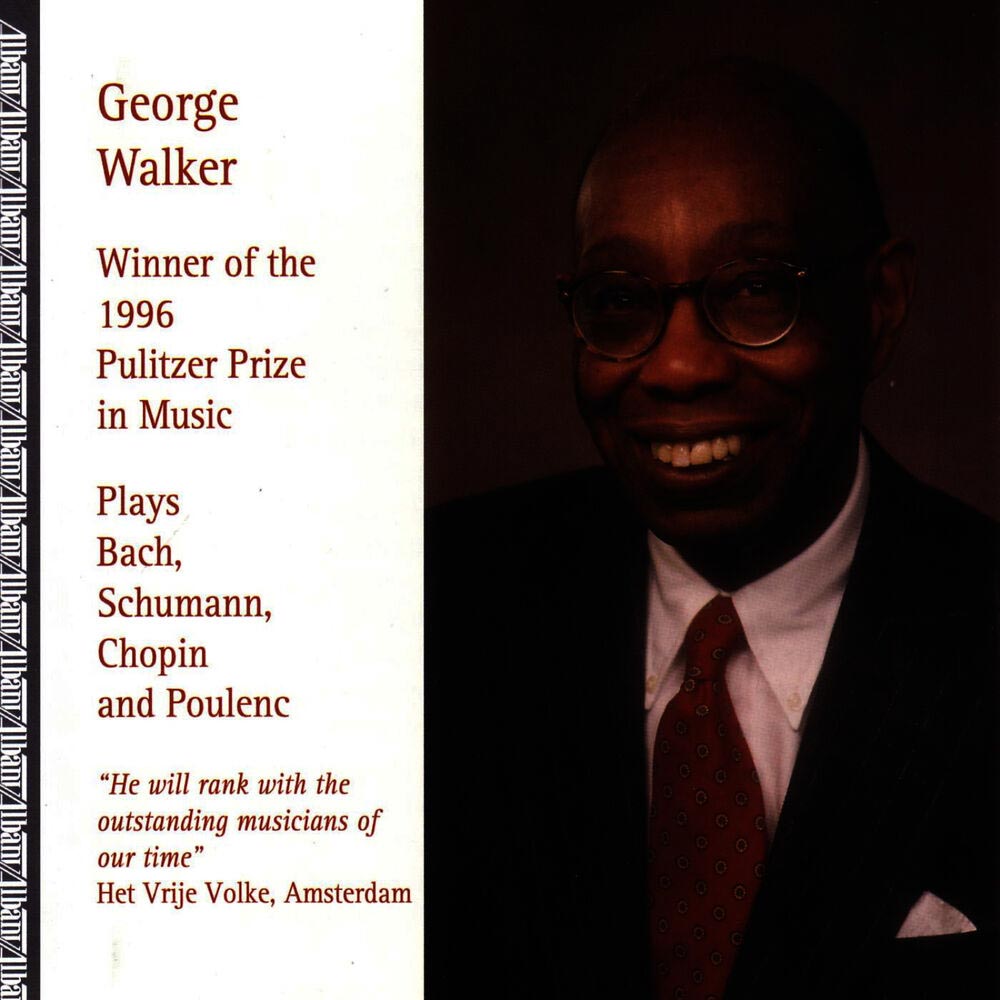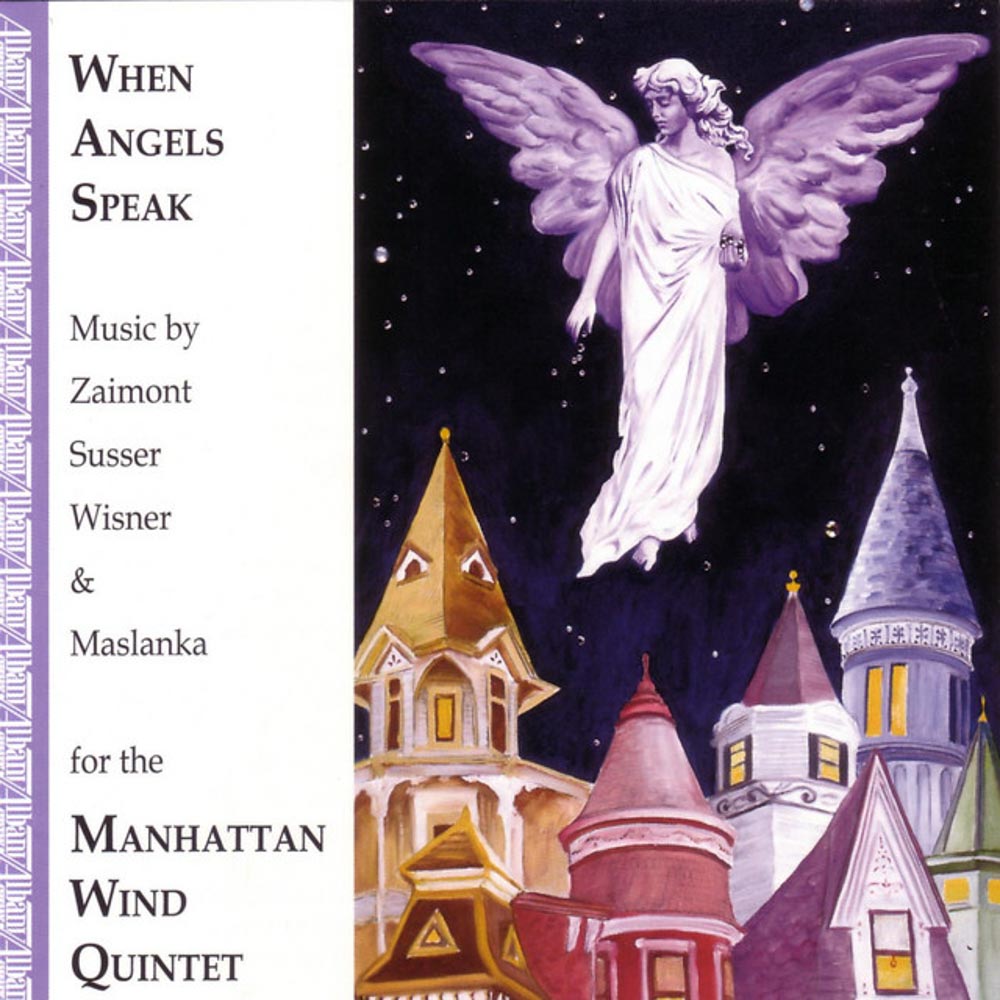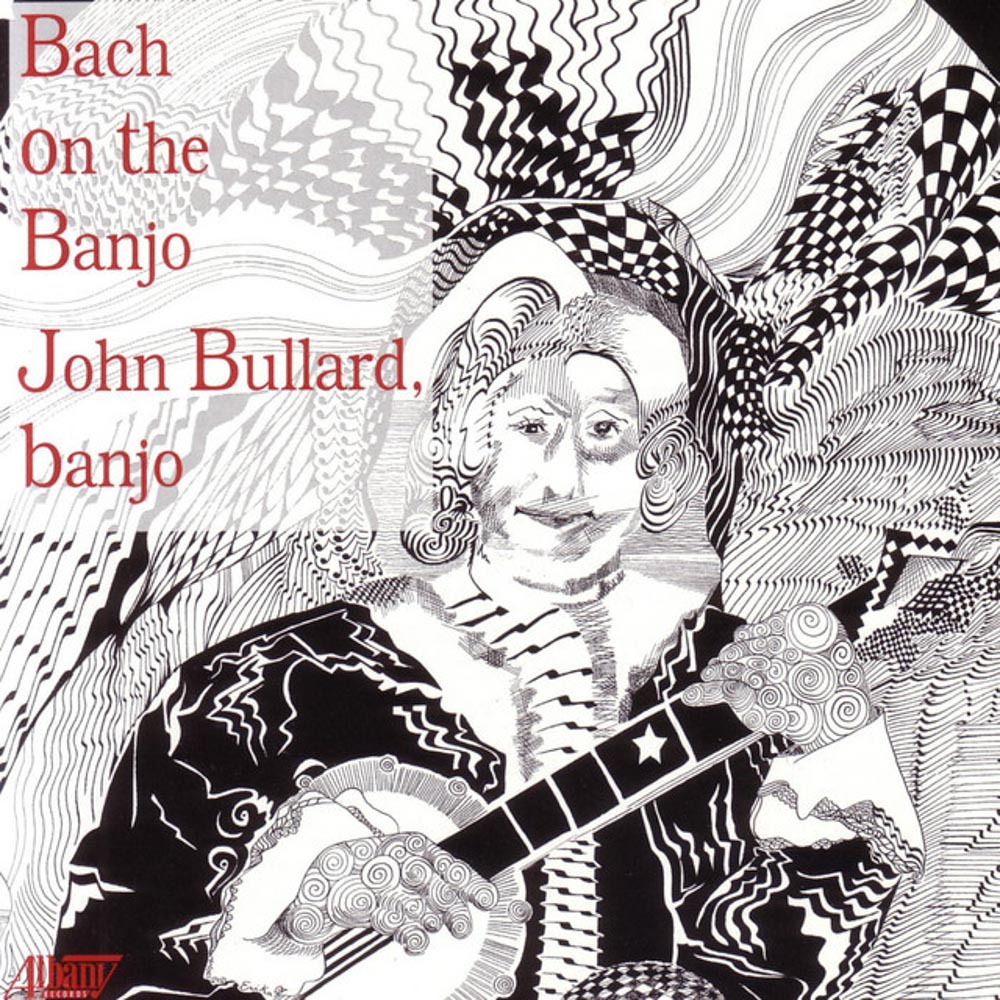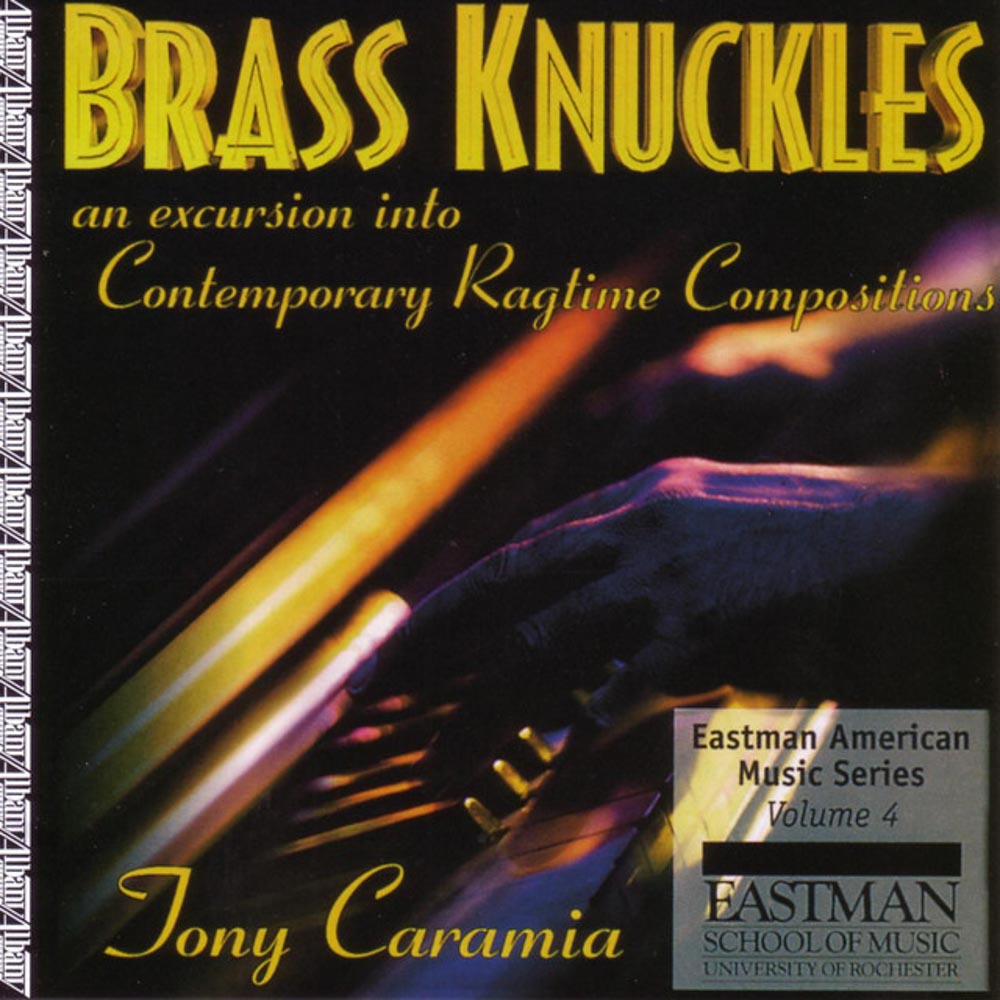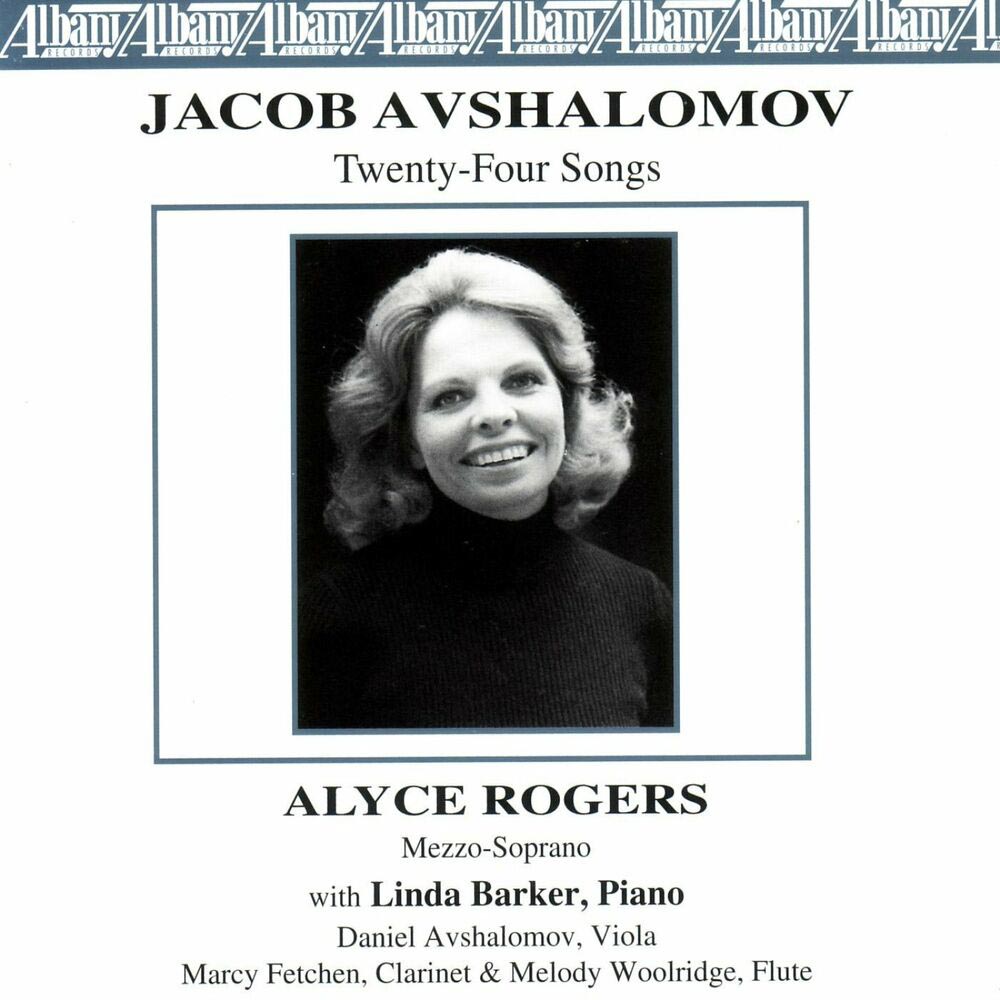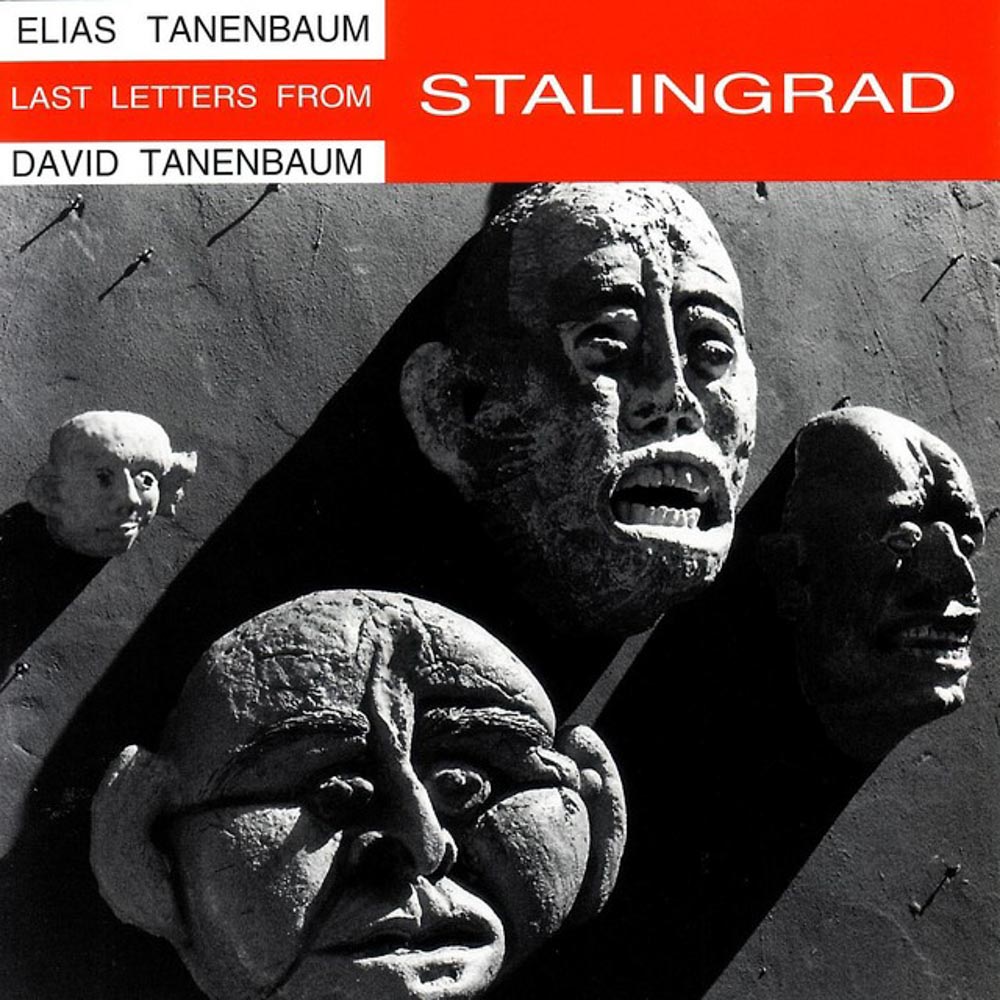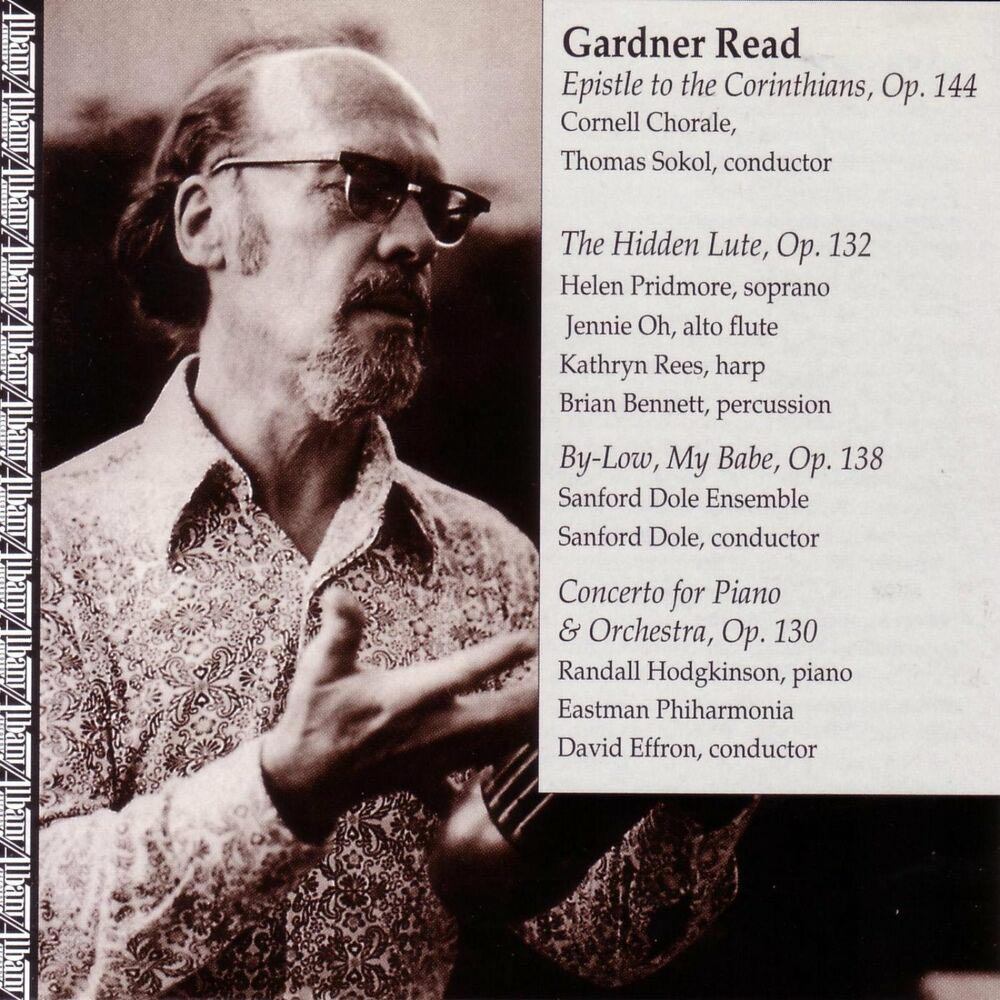Catalog #: TROY0286
Release Date: May 1, 1998OrchestralYou are probably thinking, with the reputation of Albany Records for American music and composers, what are we doing introducing a series of recordings devoted to the music of Andrei Eshpai? The answer is simple. For the same reason we have so much of the English composer George Lloyd's music in our catalogue. He is a good composer who is under-represented in the catalogue as a whole. In short, we think his music is terrific and will appeal to a large audience if only they have a chance to hear it. So we are going to give you the chance. Besides, as with George Lloyd, here in Albany, we have had a special relationship with Mr. Eshpai. In February 1992, he was here in Albany when the Albany Symphony Orchestra performed his Concerto For Orchestra. From that time on, we have maintained close contact so much so that the master tapes from which this series of recordings will be drawn have been supplied to us directly by the Eshpai family. So, there will be many treasures to come. Andre Eshpai was born on May 15, 1925 in the ancient city of Kozmodemynsk on the Volga River in the autonomous republic of Mari of the RSFSR. His father, Yakov Andreevich Eshpai (1890-1963), was one of Mari's first professional composers. He was also a choral conductor, folklorist and educator. He composed the first Mari instrumental works, collected the folksongs of his region, and for many years was on the faculty of the Mari National Institute of Language, Literature and History in Ioshkar-Ola (the capital of the Mari Republic). The Eshpai home was a gathering place for many creative individuals - musicians, artists, writers and other intellectuals. It was in this enriching environment that Andrei grew up. In 1928 the family moved to Moscow where his father attended the Conservatory and his mother the Moscow Pedagogical Institute. Soon young Andrei began taking music lessons as well. He studied at Gnessin from 1934 to 1941. He served in the Soviet Army from 1943-1946. When he got out, he returned to the Moscow Conservatory where he studied the piano and composition with Miaskovsky and Orchestration with Nicolai Rakov. He graduated in 1953 and then entered the post graduate program with Aram Khachaturian. Today, he is the President of the Russian Author's Society (the equivalent of our ASCAP or BMI). The music of this fine composer should have a wide appeal.
Catalog #: TROY0283
Release Date: May 1, 1998InstrumentalThis compact disc presents keyboard masterpieces by five of our century's most acclaimed Jewish composers. The sampling of the rich and varied traditions of Jewish music seems especially appropriate as this is the 50th anniversary of the founding of the state of Israel. A somewhat mischievous note of caution creeps in, however, when one attempts to define precisely what "Jewish music" is. Apart from that which can be heard as either liturgical or folk, one faces an enormous gray area of diverse styles (often in the same work), national influences and musical personalities. All of which is to say that "Jewish music" is much more similar to than distinct from other music. This is especially true in America today as younger composers have shed much of their teacher's and their teacher's heritage. Jewish composers exhibit all the strengths and all the weaknesses found among all musicians as of all humanity. When describing great works of art of all styles or origins, massive or minuscule in scope, one is speaking in part of the "vision" of its creator. This is not a mystical term; rather it describes an overreaching personal statement which envelopes the work and, when combined with formal coherence, creates a sense of artistic truth. While this "vision" is common to all great art, the creator can cast his gaze in many different directions: upward towards the heavens; inward towards the mysteries of the self; outward towards the sights and sounds of the world; backward to the past or forward to the future. This sense of "Jewish music" is perhaps to be found here; while all art contains a vision, the Jewish vision is distinct in just what the artist, in this case the composer, sees and feels.
Catalog #: TROY0282
Release Date: April 1, 1998ChamberIrwin Bazelon died on August 2, 1995 at the age of 73. He composed nine symphonies and over 60 Orchestral, Chamber and instrumental pieces. Born in Evanston, Illinois, he graduated from DePaul University with a bachelor's and master's degree in music. After studying composition with Paul Hindemith at Yale briefly, he went to Mills College in Oakland, California with Darius Milhaud. From 1948 until his death, he lived in New York City and Sagaponack. His Long Island retreat was the perfect counterpoint for the tensions and hustle-bustle of urban life with which his rhythmically complex and often jazz-tinged music bristles. In his early years in New York, Bazelon supported himself by scoring documentaries, art films and theatrical productions. During the 1950's and 1960's he composed more than fifty scores of this kind, which proved to be an invaluable preparation for his Orchestral music. As a valedictory of sorts he wrote Knowing the Score: Notes on Film Music. Published in 1975, this book is widely used as a college text. As a guest composer Bazelon frequently lectured at leading universities and music schools throughout the United States and England. Young people were especially drawn to his feisty spirit and no-nonsense approach to earning a living by applying compositional talents to the commercial world without sacrificing integrity. A long-time horse racing enthusiast, one of his best known works, Churchill Downs (Chamber Concerto No. 2) is named for the home of the Kentucky Derby, and his ninth symphony (subtitled Sunday Silence for the winner of the 1989 Derby) is dedicated to the horse. Definitely an interesting man who gives us interesting music.
Catalog #: TROY0275
Release Date: April 1, 1998ChamberTom Myer is the Professor of Saxophone for the College of Music at the University of Colorado at Boulder and has served as the Director of Jazz Studies from 1988-95. He received his M.M. degree in woodwind performance and jazz studies from North Texas State University. He earned his undergraduate degree in music education from the University of Wisconsin-LaCrosse. He has worked professionally for Woody Herman, Nelson Riddle, Ice Capades and Disney World, and has backed up such names as Dave Grusin, Doc Severinson, Bob Hope, Dionne Warwick and numerous others. Joseph Lukasik is on the music theory and jazz faculties at the University of Colorado at Boulder. In 1993, he received first prize in the Barlow International Composition Competition. Chris Theofanidis' Netherland was commissioned by Worldwide Concurrent Premieres and Commissioning Fund, as a consortium commission. There are two versions of the work, one for piano and one for Orchestra. David Gillingham is Professor of Music Composition at Central Michigan University in Mt. Pleasant, Michigan.
Catalog #: TROY0280
Release Date: March 1, 1998Wind EnsembleAnthony Iannaccone was born in New York City and studied at the Manhattan School of Music and the Eastman School of Music. His principal teachers were Vittorio Giannini, Aaron Copland, and David Diamond. During the 1960's, he supported himself as a part-time teacher at the Manhattan School and Orchestral violinist. His catalogue of approximately fifty published works includes three symphonies, as well as smaller works for Orchestra, several large works for chorus and Orchestra, numerous Chamber pieces, and a variety of works for wind ensemble. Since 1971, he has taught at Eastern Michigan University, where he conducts the Collegium Musicum. Some sense of character and range of Iannaccone's music can be gleaned from a sampling of various descriptions given by authors and critics over the past three decades: "dark but never despairing.. intense lyricism with a distinct personality..." (Stereo Review); "...verdant, and always beautifully Orchestrated..." (The New York Times); "...the music's sonic diversity and ensembling of colors are masterful...(the reviewer) never failing to be enthralled by the insights of its argument and development..." (Fanfare). American music for wind band has been very popular recently and this disc should find a wide audience.
Catalog #: TROY0279
Release Date: March 1, 1998InstrumentalThe nine sonatas for solo piano by Boris Ivanovich Tishchenko (composed between 1957 and 1992) have attracted particular praise. "In the sonata genre, it may be that Tishchenko is well on his way to composing the most important body of works in Russia since Prokofiev," wrote Maurice Hinson in his Guide to the Pianist's Repertoire. He completed his Ninth Piano Sonata in 1992. The sonata exhibits the complexity characteristic of the last years of the 20th century. Internal links between the three movements, rather than any observance of Classical sonata form, bind the three movements together. Sergei Mikhailovich Slonimsky is the nephew of the famous Russian-American composer and lexicographer, Nicolas Slonimsky (1894-1994). For the entry on his nephew Sergei in Baker's Biographical Dictionary of Musicians, Nicholas Slonimsky wrote: "(Sergei Slonimsky's) style of composition is in the tradition of Soviet modernism, evolving towards considerable complexity of texture and boldness of idiom."
Catalog #: TROY0278
Release Date: March 1, 1998OrchestralIn the January-February 1998 issue of Fanfare, John Story writing about Yannatos' Trinity Mass said: "Trinity Mass is possibly a masterpiece worthy to stand comparison with such other 20th-century milestones as Britten's War Requiem, Tippet's A Child of Our Time and The Mask of Time, Penderecki's St. Luke's Passion, or Nono's Prometeo. The two works on this disc are the equal to the Trinity Mass, if not easier to enjoy because they are Orchestral works and the performances by both the Orchestra and the pianist are first-rate. The performers, under the composer's direction, play as well as any in this unfamiliar music. In 1988, William Doppmann asked Yannatos to write a piano concerto for him. He asked that it be a substantial piece which would show off the piano in various ways. Yannatos writes: "I started to think of ways to approach this formidable task in the summer of 1992, started to compose the work in the fall of 1992, and finished it in the spring of 1993, completing the Orchestration that summer. My own guidelines included writing a piece that linked the past to the present, musically and pianistically, presented both piano and Orchestra in a mutually dependent partnership and played with the notion of transformation and renewal in the cycles of the seasons and in the linkage and development of musical ideas." About his Symphony No. 4, Yannatos writes: "I was transfixed by events in Tiananmen Square - excited by the students' quest for greater freedom and appalled by the brutal response by the government. As a musician, I felt compelled to speak out the only way I could. I spent the summer of 1989 immersed in the rhythms and cadences of Chinese folk tunes from a collection by Yuen Ren Chao given to me by his daughter, Rulan Chao Pian, my colleague in the music department. Elements of these tunes were chosen to serve as my musical materials for the six-movement symphony I planned to write. Sketches were made that summer and the work was completed and Orchestrated by January 1990."
Catalog #: TROY0281
Release Date: February 1, 1998InstrumentalThis program features some of Haydn's earliest compositions, works that survive (in Christa Landon's words) only through "happy accident." Haydn himself felt no compunction to preserve his earliest efforts. When, in the last years of the 18th century, Breitkopf set about an authorized edition of Haydn's complete keyboard works (published 1800-1806), the composer, with a view towards posterity, expunged not only spurious works that had been published in his name, but also, as the preface explained, "those works of my early youth, which are not worth preserving." Those works that do survive from the 1750s and early 1760s are thus of particular interest, not simply as a measure of Haydn's subsequent development but also, as Landon remarks in the preface of her own complete edition of the composer's keyboard sonatas, because they possess "moments of such beauty that they should be kept alive by performance and not be allowed to fall into oblivion." Here on this new disc in Albany's continuing series devoted to the piano works of Haydn, you have the opportunity of hearing these early works for yourself and judging their value.
Catalog #: TROY0261
Release Date: February 1, 1998VocalThis album features René Fleming in what has to be one of her earliest recordings, if not the earliest. Renée Fleming received her M.M. degree from the Eastman School of Music. The music she sings on this recording was recorded in 1983, while she was still a student at Eastman. As well, the presence of the great Jan DeGaetani (1933-1989) makes this a special disc. For many years she taught at Eastman, as well as Aspen. Bruce MacCombie studied with among others, Wolfgang Fortner. For several years he taught composition at Yale University, and in the last decade he moved from teaching to administration, serving as Dean of the Juilliard School from 1986-92 and now as Dean of the School for the Arts at Boston University. Leaden Echo, Golden Echo is the setting of a poem by Gerard Manley Hopkins. Sydney Hodkinson received his earliest training at Eastman under Louis Mennini and Bernard Rogers. He also studied with Carter, Sessions, Leslie Babbitt and Ross Lee Finney. He has been on the faculty of Eastman since 1973, teaching both composition and conducting. The Alte-Liebeslieder or "Old Fashioned Love Songs" are based on contemporary poems. Stanley Walden studied composition with Ben Weber and has been a faculty member at Juilliard, Sarah Lawrence College, and the State University of New York, College at Purchase. In addition to his Broadway Musical Oh! Calcutta, which has been produced throughout the world, he has written scores for film and dance.
Catalog #: TROY0274
Release Date: January 1, 1998VocalEvery label that specializes in American music, at one time or other, does an album devoted to the music of George Gershwin; trying to come up with a disc that is unusual and interesting is the challenge. As the title suggests, all the musicians on this album are friends; the instrumentalists are all members of the Grand Rapids Symphony Orchestra. Just as George Gershwin was himself a product of diverse cultural influences, so his songs represent a variety of musical forms, styles and mediums. The collection on this disc spans the entire creative period of Gershwin's life, from The Real American Folk Song (written in 1918, and his first collaboration with his brother Ira) to the songs for the 1938 movie "The Goldwyn Follies," Love Walked In, I Love To Rhyme, and Our Love is Here to Stay, which were released after the composer's sudden death. Gershwin's friendships and alliances are evident in the songs as well. There are eight songs written for Fred Astaire and-or Ginger Rogers, two songs from the Broadway musical "Girl Crazy," (notable for the fact that the show was the Broadway debut of Ethel Merman and featured a pit Orchestra that included the likes of Glenn Miller, Jimmy Dorsey and Benny Goodman), and further selections which feature Linn Maxwell Keller with the musicians as well as the musicians alone.
Catalog #: TROY0270
Release Date: January 1, 1998OrchestralThe Pulitzer Prize winning composer, George Walker, composed his Serenata for Chamber Orchestra for the Michigan Chamber Orchestra. It received its premiere in Detroit in October 1983. It received another performance by the New York Philharmonic in July 1984 on a Horizon's 94 concert. The Lyric for Strings was composed in 1946 and premiered that year by the student Orchestra of the Curtis Institute of Music conducted by Seymour Lipkin in a radio concert. It received another performance the following year by Richard Bales and the National Gallery Orchestra. The Poeme for Violin and Orchestra was premiered by the St. Paul Chamber Orchestra with Cho-Liang Lin as violin soloist in 1991. It is a revised version of an earlier Violin Concerto. Orpheus for Chamber Orchestra was commissioned by the Cleveland Chamber Orchestra and was completed in 1994. It received its premiere in March 1995. Besides the Chamber Orchestra, it includes a part for narrator and singer. The Folk Songs for Orchestra were completed in the fall of 1990 and was premiered in May 1992 by the Baltimore Symphony under David Zinman. The composer describes his intention as "to set these melodies in an interesting way, in a respectful Orchestral manner. They are wonderful melodies. Four spirituals are quoted intact."
Catalog #: TROY0272
Release Date: December 1, 1997VocalDora Ohrenstein in her notes for this disc writes: "At its best Thomson's music achieves an eloquence all the more moving because it is done with such seemingly simple means. And in no genre is this more true than in his vocal music, where his outstanding literary skills came into play. Thomson was a gifted writer of prose, and he had an unerring ear and feel for language. When these talents were put to use in the setting of a text the results are exemplary - indeed, his achievements here are seldom disputed. That recognition has focused primarily on his fidelity to the natural rhythms and cadences of speech and for Thomson this was an enduring concern. Writing about his first song settings of poems by Gertrude Stein, he says: "My hope in putting Gertrude Stein to music had been to break, crack open, and solve for all time anything still waiting to be solved, which was almost everything, about English musical declamation. My theory was that if a text is set correctly for the sound of it, the meaning will take care of itself...I had no sooner put to music...one short Stein text than I knew I had opened a door. I had never had any doubts about Stein's poetry; from then on I had none about my ability to handle it in music. His text settings are models of clarity, but closer examination reveals that there is far more to admire in Thomson's handling of poetry. Time and time again, he finds ingenious ways to reveal a poem's structure, enhance and amplify its meaning, and underline the potent word or image." Here we have a wonderful selection of songs by this fine American composer who composed so well for the voice.
Catalog #: TROY0271
Release Date: December 1, 1997Wind EnsembleRimsky-Korsakov's three works for solo instruments and military band, the Concerto for Trombone (1877), the Variations for Oboe (1878) and the Concertstuck for Clarinet (1878), date from his years as Inspector of the Imperial Russian Naval Bands (1873-1884). Not only do these works testify to the growing expertise in Imperial Russian military music performance (doubtless as a result of the newly established St. Petersburg and Moscow Conservatories), but they also give us some insight into Rimsky's ever-evolving compositional thinking. The composer acknowledged as much, writing in his memoirs that they were "written primarily to provide the military band concerts with solo pieces of a less hackneyed natures than the usual: secondly that I myself might master the virtuoso style so unfamiliar to me, with its solo and tutti, its cadences, etc." And in many ways these three pieces constitute "experiments" in that combination of ensemble sonority and solo virtuosity that earmark Scheherazade (188) as a masterpiece of Orchestral wizardry. The first performance of Karel Husa's Music for Prague 1968 was given at the Music Educators National Conference in Washington, DC in 1969. The work was commissioned and premiered by the Ithaca College Concert Band with Kenneth Snapp, conductor. Since that time, it has received over 7,000 performances in both its original version for concert band, and the composer's adaptation for symphony Orchestra. Prokofiev began composing marches for wind band in the mid 1930s, during the period when he returned to the Soviet Union. His first was the Athletic Festival March from 1935, in which he imagined a festival march for millions of young Soviet athletic. As well, the three soloists on this disc are all or have been members of the Philadelphia Orchestra.
Catalog #: TROY0267
Release Date: November 1, 1997OrchestralIt is an honor for Albany Records to introduce you to the music of the disgracefully neglected American composer, Edward Collins. During the first part of the 20th century, when American music was struggling to find a distinctive voice and a place on concert programs, Chicago composers were blessed with a nurturing champion in the person of Frederick Stock, the second conductor of the Chicago Symphony Orchestra. Among the gifted musicians who would benefit from Stock's fatherly care was Edward Joseph Collins. Between 1924 and 1943 his music was often heard at Chicago Symphony concerts with the composer himself appearing as soloist in his piano concerti or as guest conductor of his various Orchestral compositions. He was born in Joliet, Illinois to Irish-American parents. The youngest of eight musically talented brothers and sisters, he was giving piano recitals at the age of nine and at 14 became a pupil of the renowned pianist Rudolph Ganz. When Ganz moved to Berlin, Collins accompanied him where he studied with Max Bruch and Engelbert Humperdinck. He made his European debut in 1912 and in the fall returned to America, touring on a double bill with the great soprano Ernestine Schumann-Heink (Collins's sister, Kate Hoffman, was Schumann-Heink's accompanist for 35 years). As a result of the tour, Collins was engaged as the assistant conductor of the Century Opera Company in New York. In 1914, he became an assistant conductor at the Bayreuth Festival in Germany. During World War I, Collins served as a Lieutenant for the 88th Division in France. He entertained troops not only by performing but also by composing an operetta "Who Can Tell?" which General Pershing and President Wilson attended on opening night. After the Armistice, he returned to the concert stage. In 1919 he joined the faculty of the Chicago Musical College. In 1933 he moved his studio to the American Conservatory of Music and remained on their faculty until his untimely death in 1951. It is wonderful that we have musicians of the caliber of Marin Alsop and her great Orchestra giving Edward Collins's music the attention it deserves. Here is the music of a wonderful composer.
Catalog #: TROY0265
Release Date: November 1, 1997OrchestralMichael Horvit is a Professor at the University of Houston Moores School of Music, where he has headed the Theory and Composition Department since 1967. For 25 years he served as Music Director at Congregation Emanu El, Houston. During his studies at Yale University, Tanglewood, Harvard and Boston University, his composition teachers were Aaron Copland, Lukas Foss, Walter Piston, Quincy Porter and Gardner Read. The Cullen Overture was commissioned by the University of Houston for the rededication of the Cullen Performance Hall in October 1988. The Concerto for Brass and Orchestra was commissioned by Richard Frazier for the Chicago Chamber Brass. The Invocation and Exultation was commissioned by the Missouri Unit of the American String Teachers Association in commemoration of the 200th anniversary of Mozart's death and was premiered in January, 1991. There are several references to Mozart's music in the piece. Aleinu was commissioned by Congregation Emanu El, Houston, in 1985, in celebration of the 50th anniversary of the ordination of Rabbi Robert I. Kahn. The prayer itself is one of the most important and ancient in the Jewish liturgy - a heartfelt expression of belief in God. Daughters of Jerusalem was also commissioned by Congregation Emanu El. It was dedicated to Fredell Lack who gave it the premiere on February 25, 1996. It is titled a fantasy because it does not follow the usual plan of a concerto, but rather draws its inspiration and meaning from several poems taken from The Songs of Songs. Mr. Horvit's style is in the tradition of the American romantic sound.
Catalog #: TROY0264
Release Date: November 1, 1997VocalSoprano Jean Danton has performed extensively throughout the United States in recitals, oratorio and opera. She has appeared as soloist with the Handel and Haydn Society under Christopher Hogwood, the Oregon Bach Festival under Helmuth Rilling, the Boston Pops and the Boston Baroque. She is a graduate of the opera program at the Hartt School of Music. Dominick Argento's Six Elizabethan Songs exists in two versions: the first written in Florence in 1957 for tenor and piano and the second, revised by the composer in 1962 for soprano and Baroque ensemble (the version presented here). Songs About Spring for soprano and piano is a setting of five poems by e.e. cummings on the theme of spring. The third song of the group, "in Just spring" was a favorite of cummings himself. The English composer Arnold Cooke was born in Yorkshire in 1906. He studied with Edward Dent and in Berlin with Paul Hindemith. He taught at the Royal College of Music and Trinity College. In Three Songs of Innocence, Cooke has set three poems from William Blake's "Songs of Innocence" (1789) for soprano, clarinet and piano. For Nocturnes the composer has selected texts by five British poets. Appropriately, they all describe night scenes. William Moylan holds the Doctor of Arts degree from Ball State University, Master of Music degree from the University of Toronto, and the Bachelor of Music degree form the Peabody Conservatory of Music of the Johns Hopkins University, all in music composition. He composed his For a Sleeping Child - Lullabies and Midnight Musings especially for Jean Danton. The four songs were composed in October of 1995 and revised in January 1996.
Catalog #: TROY0266
Release Date: October 1, 1997InstrumentalThe significance of this four-volume recording project is its celebration of 20th century compositions for piano and some Chamber works written by Americans of African descent that have never been recorded or have had limited recorded performance. The contributions of the American composer of African descent to classical music is rarely addressed, and as a result, this music remains virtually unknown. Of the estimated 300 American composers of African descent listed in Readings in Black American Music: A Biographical Dictionary, few are known by most musicians, and little of their music is heard in concerts or on radio today. Furthermore, recordings of their classical music are difficult to locate because so very little of the music is available on compact disc. This compilation of works will be vital in addressing this problem. The works presented on this disc include a unique historical content and a variety of styles both quoted and extracted from the various traditional idioms of the composer’s heritage. The selected works presented in this first volume are representative of many 20th century styles and compositional ideas; the 12-tone serial techniques of Hale Smith, the multimetric and asymmetrical writings of Adolphus Hailstork, the Neo-Classic style of Roger Dickerson, the polymetric writings of Jeffrey Mumford, and the Cuban-African traditions of Tania Leon.
Catalog #: TROY0262-63
Release Date: October 1, 1997OperaThis is a live recording of the world premiere of this opera which took place on February 1, 1996, in Corbett Theater, Cincinnati, Ohio. About himself, Harold Blumenfeld writes: "I was born in Seattle of musical parents, educated at Yale with Hindemith, in Zurich and at Tanglewood, where I trained with Leonard Bernstein and Boris Goldovsky. In the sixties, from my academic base at Washington University, I launched the Opera Theater of St. Louis, forerunner of the present company, focusing on early and contemporary works and training hundreds of young singers in the process. After a 1971 guest stint at Queens College, CUNY and a productive summer at Yaddo, I shifted gears from opera production to composition. There resulted a series of works based upon Rilke and Mandelstam, Blake, Sassoon, and Hart Crane, Verlaine and Baudelaire. Then with a shock, I discovered Arthur Rimbaud." Seasons in Hell is the result of this discovery. Charles Kondek wrote the libretto for the opera. In May 1997 he was awarded the Marc Blitzstein Memorial Award in Music Theater presented by the American Academy of Arts and Letters. Blumenfeld says: "In writing our Seasons in Hell, Charles Kondek and I have ventured into largely uncharted territory - a probing of the psyche and inner drives of a genius, and an attempt to convey the full sweep and splendor of his creations. And what creationswhat genius! Arthur Rimbaud remains literature's most astounding, most perplexing prodigy. At 19, after the production of the bulk of his writing (almost entirely unrecognized in his time), he beats the Saison en enfer out of himself in an act of agonized catharsis, programming an imminent and total renunciation of literature. But his self-amputation of poetry is not quite yet to be completed: over the next two years he goes on to pen some of the most transcendent of his Illuminations. At about 22, after having wrought what later would be regarded as an upheaval and renewal of French letters, he renounces it all and embarks upon a life of action. Ultimately, he makes it to Ethiopia, where he trades in coffee and guns. At 36, his second amputation - of a cancerous leg - takes place. Within the year, he dies." Seasons in Hell is a powerful listening experience. It will be especially appreciated by people who enjoy contemporary opera. Full libretto and extensive notes are enclosed.
Catalog #: TROY0259
Release Date: October 1, 1997ChamberKarel Husa's String Quartet No. 4 (Poems) was commissioned by the National Endowment for the Arts for the consortium of the Colorado, Blair and Alard Quartets. The works was completed in the spring of 1990 in Ithaca, New York. A collection of six poems, the String Quartet No. 4 explores possibilities of unusual sonorities in a virtuosic writing. When Lucy Mann of the Naumburg Foundation requested a new work for the Colorado Quartet in 1983, Ezra Laderman thought the proposal over for about a week, and it was during this time that he realized that his Quartet No. 6 could be the first work in a triptych. He felt ready now to take the same material he had used in No. 6, music inspired by four youthful personalities, and place it "in the midst of life" as Laderman says. The four-note-motive of NO. 6 strides out again at the beginning of No. 7 - only now it is inverted, so that it reaches muscularly upward. The String Quartet 1982 by Mel Powell was composed for the Composers String Quartet, the Sequoia String Quartet and the Thouvenel String Quartet under a consortium commission from the National Endowment for the Arts, which, at the same time, commissioned this quartet and quartets from Milton Babbitt and Elliott Carter. Powell's Quartet is played through as a single movement with clearly differentiated subdivisions.
Catalog #: TROY0235
Release Date: October 1, 1997OrchestralThis is a re-release of the great disc that was for a very short time available on EMI. From its Colonial period to the present, music has played an important role in America's cultural and social well-being. With the introduction of the recording as a consumer product (coupled later with radio), America's music was brought to the masses. Since American music was now able to travel to places on a global scale, between the two World Wars, its influence - particularly in its popular and jazz forms - was strongly felt in Europe. As a counterpoint to jazz and bold avant-garde trends, composers like Howard Hanson, Randall Thompson, Roy Harris, William Grant Still, and younger composers like Morton Gould and Norman Dello Joio, for example, were developing a distinctively American symphonic school. This golden era witnessed an unprecedented flourishing that is beginning to be recognized and re-established in our current time. However, composers from that period were certainly not the first to receive national - if not international - recognition. Apart from John Alden Carpenter, whose music is clearly a product of the twentieth century, John Knowles Paine, Dudley Buck, Edward MacDowell, Arthur Foote, as well as a host of others, like Amy Beach, Gottschalk and Chadwick, were truly Romantic American composers. This disc makes a fine introduction to the music of the wonderful American composers from this period. The American conductor, Kenneth Klein, has an especial affinity for this music and the Orchestra plays gloriously for him.
Catalog #: TROY0260
Release Date: September 1, 1997OrchestralWalter Simmons writing in the July-August 1997 Fanfare reviewing a new Delos recording of Mennin's music conducted by Gerard Schwarz and the Seattle Symphony Orchestra said, "less than a week before this writing, the Albany Symphony Orchestra, under the direction of their ambitious and talented young conductor David Alan Miller, performed and recorded a group of Mennin worksHaving just heard the Albany Symphony's performance of this work (Moby Dick), I anticipate that that recording will be far more satisfactory." For America's great serious music to be enjoyed and understood by audiences it must be communicated to them with energy, excitement, and exuberance by the conductor. David Alan Miller does this in the music heard on this disc. The highlight of this recording is the Symphony No. 6.
Catalog #: TROY0258
Release Date: September 1, 1997ChamberAnthony Holland was born in Cleveland, Ohio in 1955 and studied at The Cleveland Institute of Music and Case-Western Reserve University. He studied with Donald Erb, Hale Smith and Leslie Bassett. Since 1982 he has been a Professor of Music at Skidmore College in Saratoga, New York. Holland composed his Piccolo Concerto to demonstrate that the piccolo could be used as an expressive solo instrument. Pohadka a Variace was composed and premiered in the spring of 1997. The title means fairy tale in Czech. The guitar pieces were composed for Joel Brown, the soloist who performs them on this disc. Intensity 51.5+ is a light-hearted reference to Varese's Density 21.5. The original piece was 51.5 measures long. The + means the soloist repeats the piece as many times as they feel necessary. The New England Poems was commissioned by Sandy Schwoebel, long-time editor of The Flutist Quarterly, for performance at the National Flute Association Convention in Boston in1993. The Violin Concerto was commissioned and premiered by the great Czech violinist Frantisek Novotny. The music of Anthony Holland will appeal to anyone who enjoys mainstream American music. It is accessible and tonal.
Catalog #: TROY0257
Release Date: September 1, 1997Wind EnsembleSteven Stucky was born on November 7, 1949, in Hutchinson, Kansas and grew up in Kansas and Texas. He holds degrees from Baylor University and Cornell University. His principal teachers have been Robert Palmer, Karel Husa, and Burrill Philips. For two years, beginning in 1978, he taught composition at Lawrence University in Appleton, Wisconsin. Then he joined the faculty of Cornell University, where at present he is Professor of Music and Chairman of the Department of Music. It was at the suggestion of Esa-Pekka Salonen that Stucky transcribed the music of Purcell. He used as the basis of the work, three pieces that Purcell composed for the funeral of Queen Mary who had died of smallpox on December 28, 1694. Threnos was commissioned by the Cornell University Wind Ensemble in memory of the fine composer Brian Israel who died at the age of 35 of leukemia. Fanfares and Arias was commissioned by the Big Eight Band Directors Association and first performed by the University of Colorado Wind Ensemble, during the national Conference of the College Band Directors National Association on February 22, 1995. Voyages was composed for cello and wind Orchestra. It was first performed by the English cellist, Lynden Cranham, with the Yale University Band.
Catalog #: TROY0251
Release Date: September 1, 1997ChamberWilliam Albright was professor of composition at the University of Michigan at Ann Arbor from 1982 until his death. His Four Fantasies for harpsichord were commissioned by Douglas Reed, who performs them here and were composed at the American Academy in Rome. Norman Dinerstein was born in Springfield, Massachusetts and studied composition with Lutoslawski, Schuller, Copland, Foss, Sessions and Babbitt. He considered Arnold Franchetti his most important teacher. He chaired the departments of composition, musicology and theory at the Cincinnati College-Conservatory of Music. He was Dean of the college when he died of a heart attack in 1982. Love Songs is an example of his late music and uses words by the Brownings, Christina Rossetti and the Song of Solomon. This music is "Tonal, expressive and deeply humanistic." Ann Silsbee studied at Radcliffe College and Syracuse University. She received her doctorate from Cornell where she studied with Karel Husa. Janice Hamer studied at Harvard University and holds a master's degree in conducting from Westminster Choir College. She taught and conducted at St. Paul's Girls' School and at the Guildhall School of Music in London, where here music was performed in concert halls and on the BBC. She served as choral director at Haverford and Bryn Mawr Colleges before turning to composition.
Catalog #: TROY0254
Release Date: August 1, 1997ChamberCharles Knox is a former student of Bernard Heiden at Indiana University where he received the Ph.D. degree. He has written over 100 compositions and received commissions for conventional instruments as well as such unusual combinations as bassoon choir and tuba octet. His most recent compositions are a short opera, Workshop, a symphony for saxophone Orchestra, and a duo for piano and keyboard percussion called Attempted Claviercide. Clouds are not Spheres for flute, cello and piano was composed in 1994 especially for the performers heard on this disc. The title "clouds are not Spheres" comes from a statement made by Benoit Mandelbrot in Chaos by James Gleik. Song and Double is a lyrical tune for oboe and piano and it was composed in 1984. Semordnilap was composed in 1991 as a light, humorous piece for a fundraising drive for the contemporary music ensemble, Thamyris. It is composed for flute, piano, soprano and marimba. Scherzos for horn, violin, cello and piano was composed in 1994 for the Atlanta Chamber Players. Rounds About for violin, clarinet, trombone and percussion is in five short movements and was composed in 1983. Music for Brass Quintet is a work in three movements and was composed in 1967. The Suite for Piano Four-Hands is the oldest work on this disc and was composed in 1959. Wings of Our Soul was composed in 1993 and is written for violin and Organ. Music for Brass Quintet and Piano was commissioned by the Georgia Association of Music Teachers in 1983. The performers of the music on this recording are from the Atlanta area; many are principals and members of the Atlanta Symphony Orchestra.
Catalog #: TROY0252
Release Date: August 1, 1997InstrumentalThe great American composer George Walker, who won the Pulitzer Prize for music in 1996 with his composition, Lilacs for Voice and Orchestra began his musical career as a pianist. He was born in Washington, DC in 1922. He began to take piano lessons when he was five years old. He graduated from Oberlin at 18 and went on to Curtis where he studied piano with Rudolf Serkin and composition with Rosario Scalero. In 1945 he made his acclaimed New York debut in Town Hall in a concert that was sponsored by Mr. And Mrs. Efrem Zimbalist. Two weeks later, he appeared with the Philadelphia Orchestra as soloist in the Rachmaninoff Piano Concerto No. 3 under Eugene Ormandy. Subsequently he appeared with many major Orchestras performing the core of the romantic repertoire. In 1950, he became the first black instrumentalist to obtain major concert management. In 1953, he became the first black artist to make a major concert tour of Europe, where he played to resounding acclaim in seven countries. Here we have the composer as performer in works that have long had special meaning for him. This is a unique, warm, lovely disc. Please note that it is HDCD encoded for your customers who are looking for the latest in digital technology.
Catalog #: TROY0246
Release Date: August 1, 1997ChamberThe Manhattan Wind Quintet was founded in 1985, while several of its members were earning degrees at the Manhattan School of Music in New York City and playing in the prestigious National Orchestral Association. From the beginning, the ensemble has been active in advancing the cause of new music for winds. It is not surprising then, that this, their first recording, is a collection of contemporary works composed by young Americans with whom they have collaborated over the years. Judith Zaimont composed When Angels Speak during November and December 1987, while she was flat on her back recovering from a broken leg. It is an 11 minute work, in one movement with four large sections. From the beginning it was conceived as an ensemble work, using the five players almost all the time, almost as a miniature band. Since 1992 she has been professor of composition at the University of Minnesota School of Music in Minneapolis. Peter Susser composed his Till Drumlin Waves in 1989. Today he is a member of the faculties of Columbia University and the School of Continuing Education at New York University. The composer Stephen Wisner wrote his Nocturne for Wind Quintet in August 1993 in honor of his mother who had recently died. "My objective was to commemorate my mother with an enjoyable and romantic piece, they type she would have enjoyed. The music of mine that she liked best involved uncomplicated key signatures and pretty melodies. I have incorporated one of her favorite melodies into this Nocturne: the "Children's Prayer" from Humperdinck's Hansel and Gretel." Wisner studied at the University of Michigan with Leslie Bassett and William Bolcom. He is a professional bassoonist. David Maslanka's Quintet No. 2 for Winds was commissioned by the Manhattan Wind Quintet, which gave the work its first performance in 1987 at the Weill Recital Hall in Carnegie Hall in New York City. It has three movements. David Maslanka currently lives and composes on a ranch in Missoula, Montana.
Catalog #: TROY0255
Release Date: July 1, 1997InstrumentalHere is an imaginative offering that should have wide appeal. John Bullard has attracted international attention for his work in developing and transcribing the classical repertoire for the five-string banjo. A highly regarded bluegrass artist as well, John began playing the banjo as a child and was strongly influenced by the legendary Earl Scruggs. He was on the 1992 faculty of the world-renowned Tennessee Banjo Institute, along with Pete Seeger and Bela Fleck. It has been said about him: "what Segovia did for the guitar, John Bullard may well do for the five-string banjo; elevate it to a respected classical instrument." Bullard himself writes: "I love the five-string banjo. Penetrating and soulful, its personality is bewitching. I encountered "Scruggs Style" picking as a youth and was hooked. I have the same visceral reaction when I hear lutes and harpsichords. They posses that raw, plucked sound so characteristic of the banjo. In fact, when I listen to Renaissance and Baroque music, I hear banjos. The same earthy texture found in Appalachian music attracts me to the Early Music of Europe and Britain. While it is fascinating to realize the ties between Appalachia and its musical ancestors, my transcribing of "Classical" works for banjo simply indulges my passions. While drawn to the music of Bach, his contemporaries, and their Renaissance forebearsI love the five-string banjo."
Catalog #: TROY0253
Release Date: July 1, 1997InstrumentalWhile the music on this recording is not Scott Joplin, it most certainly does capture the flavor of old time rags. Sydney Hodkinson, the producer for this series of Eastman recordings says: "From roughly the late 1930s through the early sixties, most serious American composers worked within one of two basic musical encampments, continuing and expanding upon traditions established by the 20th century giants Schoenberg and Stravinsky. In striking contrast to this earlier era, today's younger generation of composer benefits from exposure to what has been called a +veritable salad bowl of styles,' marked by an extremely wide range of character, aesthetics and musical cross-currents. The works represented in this Eastman American Music Series of new music recordings bear eloquent testimony to the effect this healthy and diverse musical diet has had on the work of American composers. Various auditory repasts offer composers a choice of forms and influences from such divergent sources as jazz, non-Western music, romanticism, dodecaphony, minimalism, pop and rock, asceticism, cross-over, and spiritualism and all on the same menu! This variety serves both as a high-calorie, vibrant sign of our own creative times, and as a demanding burden placed upon American composers seeking, indeed groping for, their own unique voices: +Red or green peppers? Radish? How much onion? What kind of lettuce? How do I choose my OWN language that will allow me to speak what I need to say?' The works recorded on this disc present the distinct and often unusual offerings of a few leading, contemporary American +workers' in this sonic kitchen." The pianist for this disc, Tony Caramia, is associate professor of piano at the Eastman School of Music, where he is director of piano pedagogy studies and coordinator of the class piano program.
Catalog #: TROY0249
Release Date: July 1, 1997VocalJacob Avshalomov was born in Tsingtao, China in 1919. He studied music first with his father, Aaron Avshalomov, and then Ernst Toch, Bernard Rogers, Aaron Copland and at Reed College and the Eastman School. He has taught at Columbia University and summers at Tanglewood and Aspen. From 1954 to 1994, he was conductor of the Portland Youth Symphony where he conducted among other works, the U.S. premieres of Tippett's The Child of Our Time and Roger Sessions' Divertimento. About the music on this disc, Mr. Avshalomov writes: "I'm with William Byrd, when he proclaimed, "Since synging is so good a thynge I wish all men would learne to synge.' The human voice is the ultimate musical instrument. I still believe this even after having reveled for 40 years as conductor of the Portland Youth Symphony. So it was no surprise to me, when I stepped down from my podium to concentrate on composing that as I surveyed my lifetime list of works, I realized over half of them were either vocal or choral. This, of course reflects an abiding interest in poetry and devotional literature of various persuasions. The songs presented in this recording were composed over a 40-year period, which began a decade before I became a conductor. Almost all the songs were composed for mezzo-soprano."
Catalog #: TROY0247
Release Date: June 1, 1997ChamberElias Tanenbaum was born in Brooklyn and studied trumpet at an early age and played with assorted jazz bands. After serving with the U.S. Army in World War II, he received a B.S. from Juilliard and an M.A. from Columbia. His composition teachers included Dante Fiorillo, Bohuslav Martinu, Otto Luening and Wallingford Riegger. To date he has composed more than 100 works in all idioms and his music includes works for the concert hall, jazz, theater, television and ballet as well as electronic and computer music. He is currently Visiting Composer at the California Institute for the Arts, on the composition faculty at the Manhattan School of Music, and Director of the Electronic Computer Music Studio. The largest work on the disc, Last Letters from Stalingrad, consists of excerpts from letters written by soldiers from the German Sixth Army who were surrounded at Stalingrad in 1942-43. Of the 300,000 men in that army, only about 5,000 survived. What happened to those German soldiers in 1943 can and does happen to people everywhere. What would any of us write if we knew we were surrounded and doomed and that we had been sold out and abandoned by our leaders. The German High Command, in order to ascertain the morale of the troops, allowed the soldiers to send letters home. The letters were then impounded, opened and the addresses and senders' names removed. They were then classified by content and general tenor, tied in neat bundles, and eventually stored in the archives. Although the Germans were our enemies in 1943, these letters are a human document that bares the soul of men in their worst hour. This is a most moving composition.
Catalog #: TROY0245
Release Date: June 1, 1997ChamberGardner Read was born in Evanston, Illinois and has enjoyed a prolific and varied career as composer, conductor, teacher and author. As a high school student majoring in music he studied piano and Organ privately and took lessons in composition at Northwestern University's School of Music. During the summers of 1932 and 1933, he studied composition and conducting at the National Music Camp, Interlochen, Michigan, where in 1940, he taught composition and Orchestration. In 1932, he was awarded a four-year scholarship to Eastman, where his principal teachers were Bernard Rogers and Howard Hanson. In 1938, on a Cromwell Traveling Fellowship to Europe, he studied with Pizzetti in Rome and briefly with Sibelius in Finland, just before the outbreak of World War II. He also studied with Aaron Copland at Tanglewood in1941. From 1941 to 1948 Read headed the composition departments of the St. Louis Institute of Music, the Kansas City Conservatory of Music and the Cleveland Institute of Music. In 1948, he was appointed composer-in-residence and professor of composition at the School of Music, Boston University, retiring as Professor Emeritus in 1978. The major work on this disc, the Piano Concerto, although composed in 1973-78, had to wait until January 31, 1996 for its premiere. The performance on this disc is of that wonderful performance. Randall Hodgkinson does a terrific job.
Catalog

©2024 Albany Records. All rights reserved. | Privacy Policy | Website by PARMA Creative.
